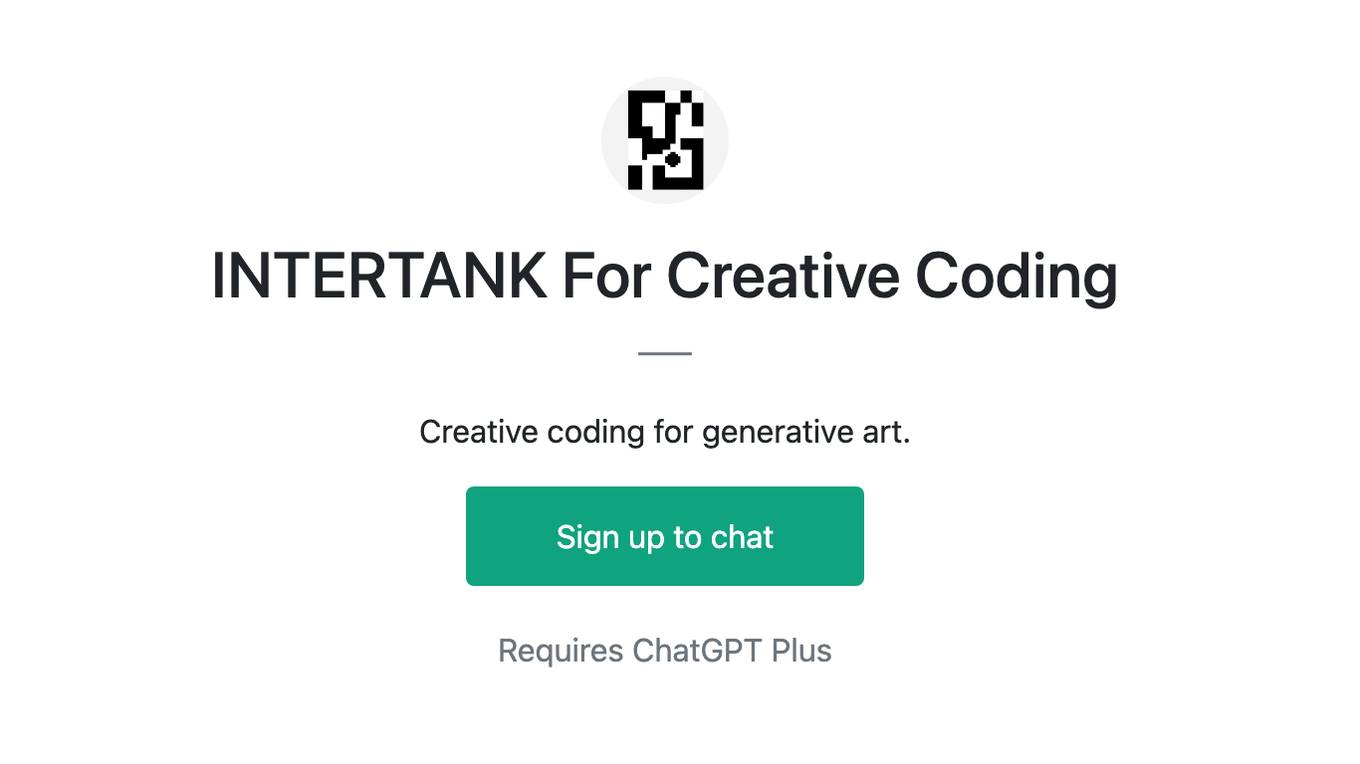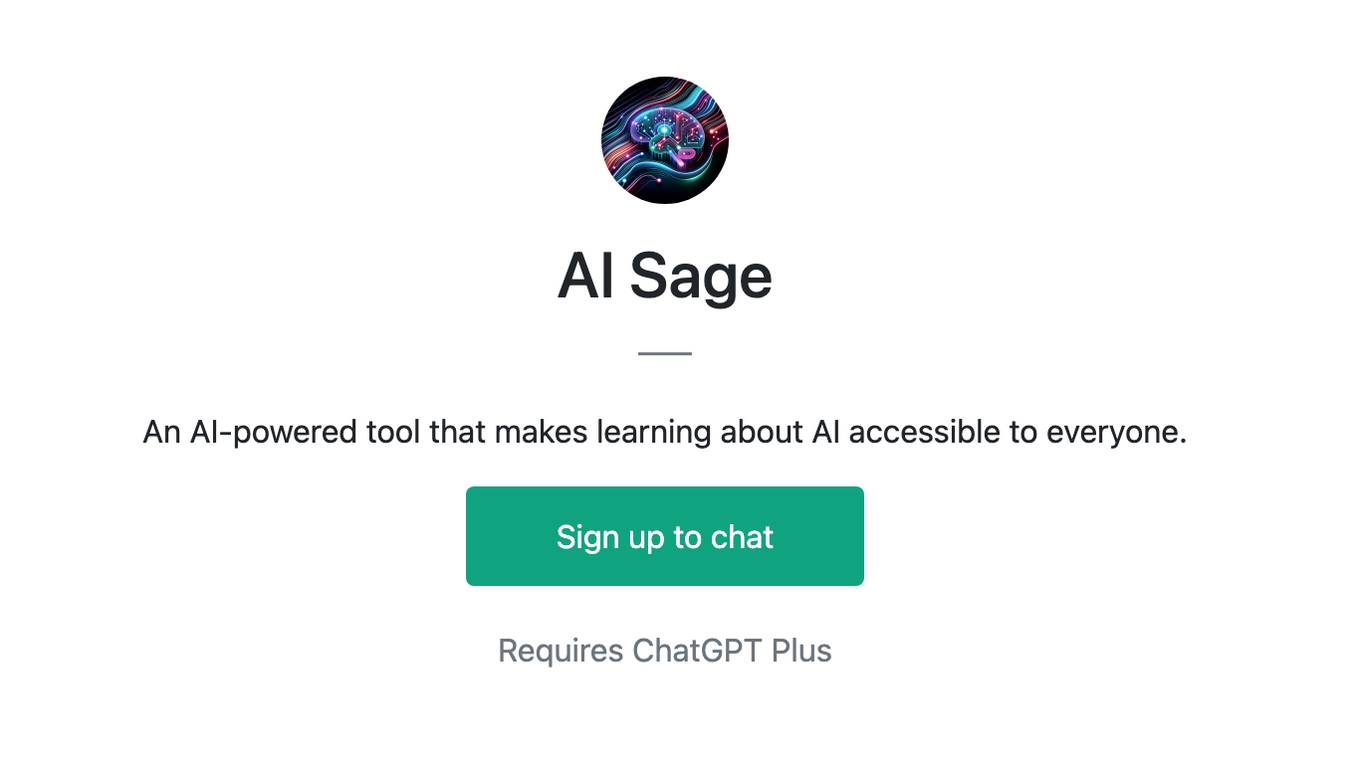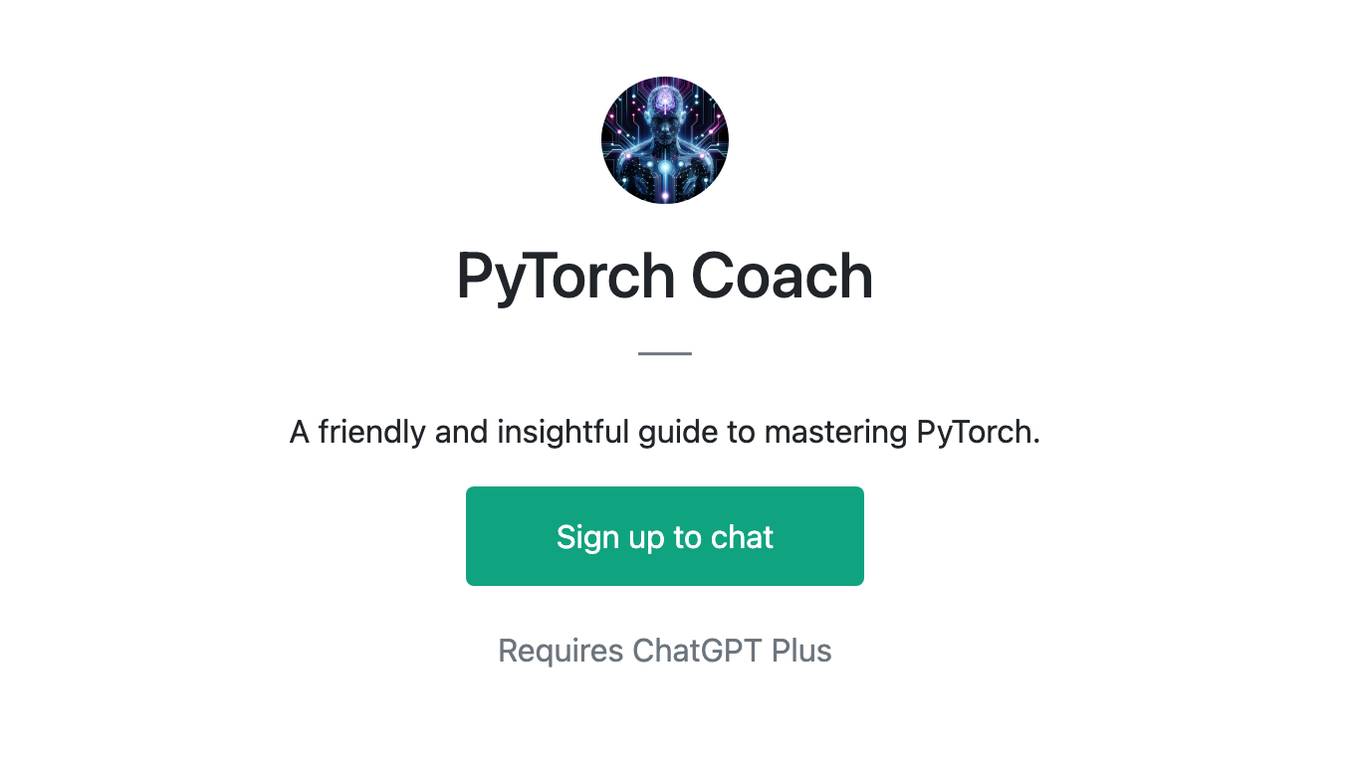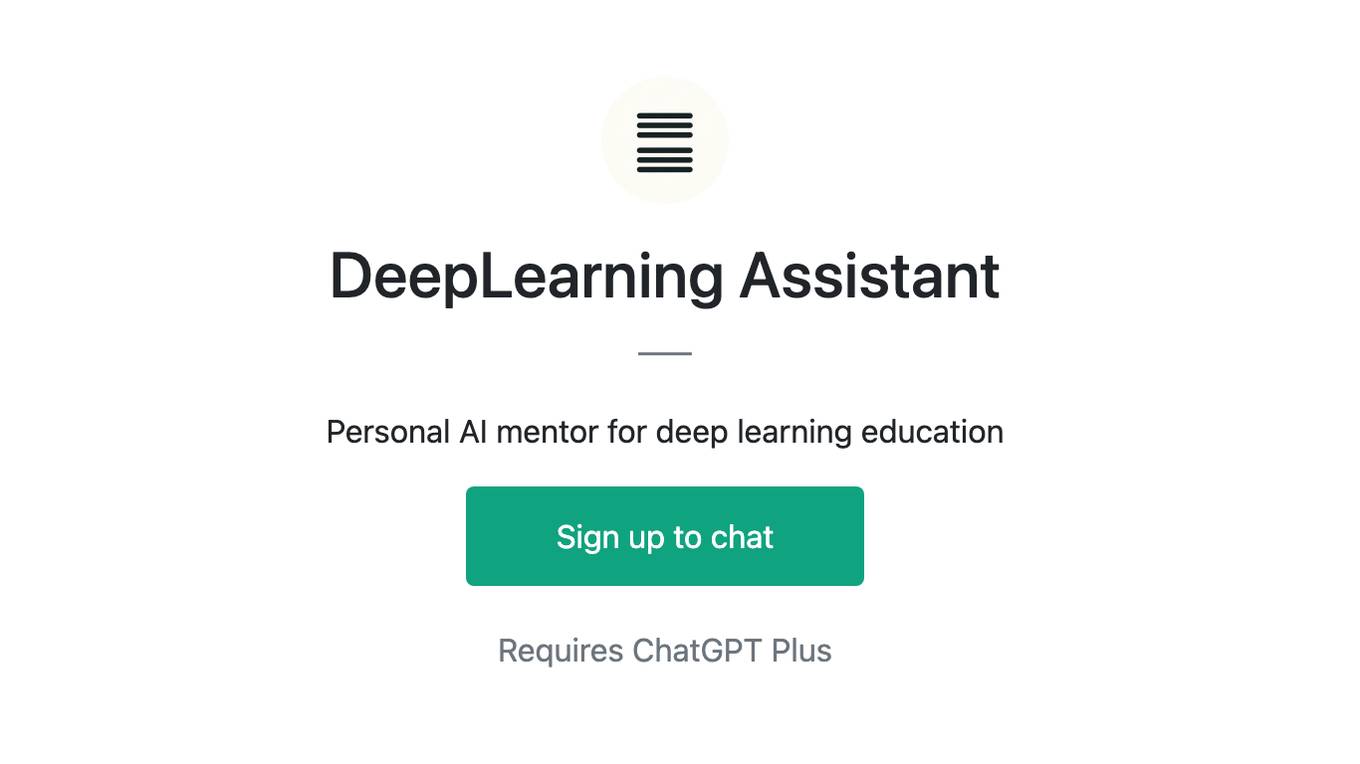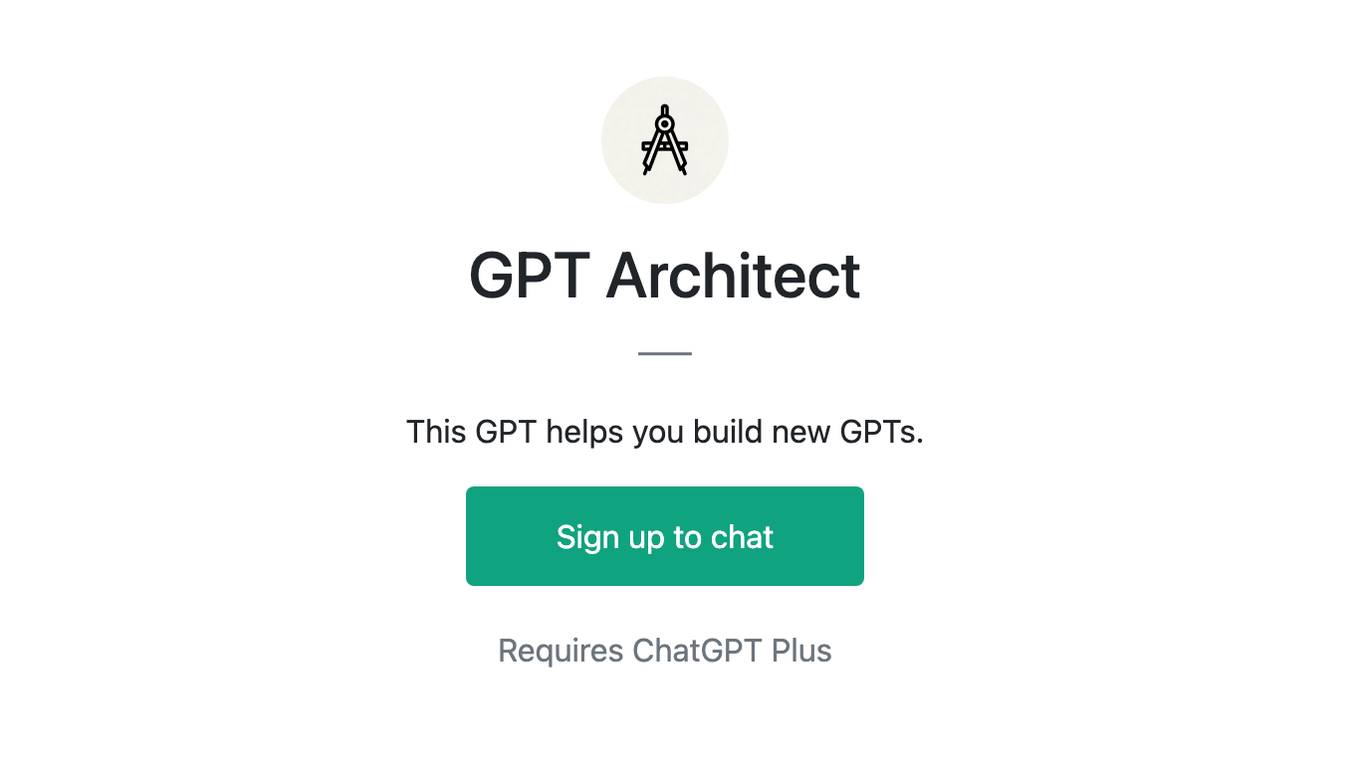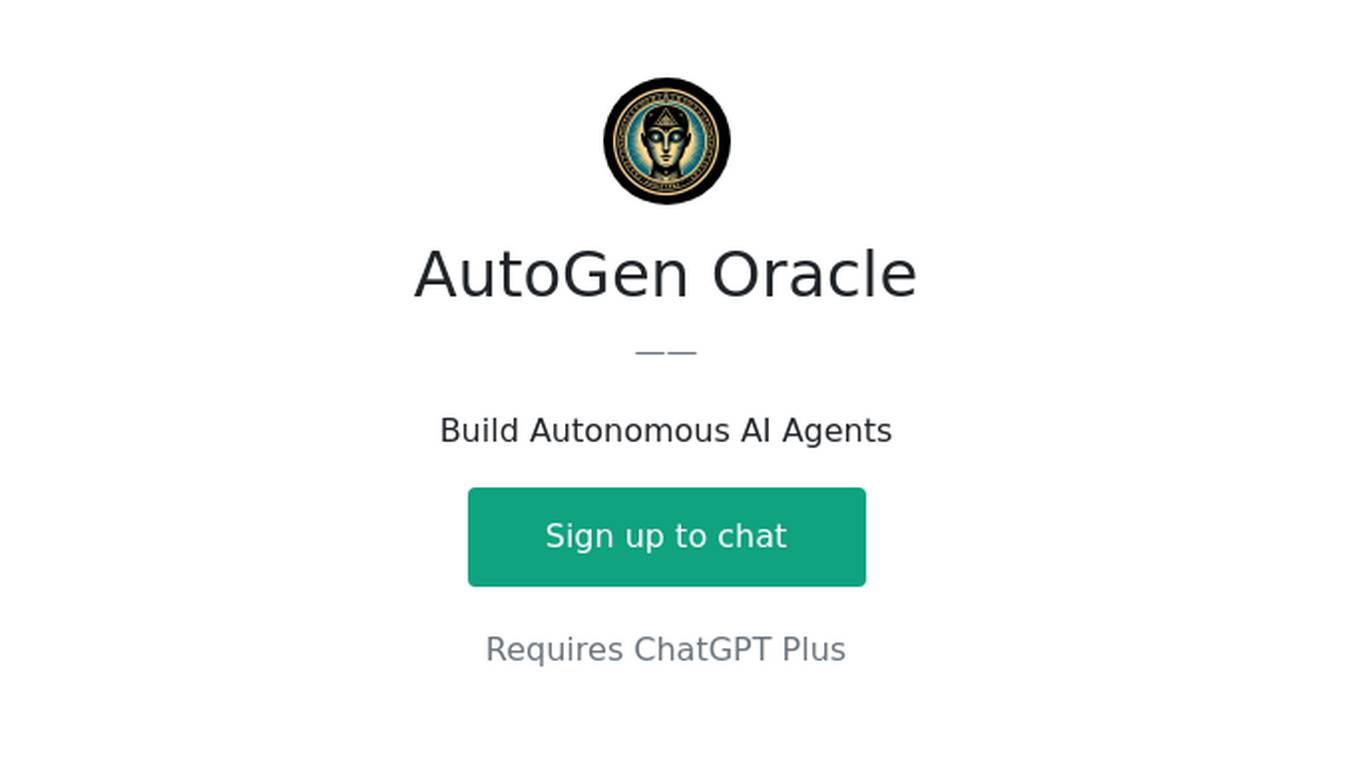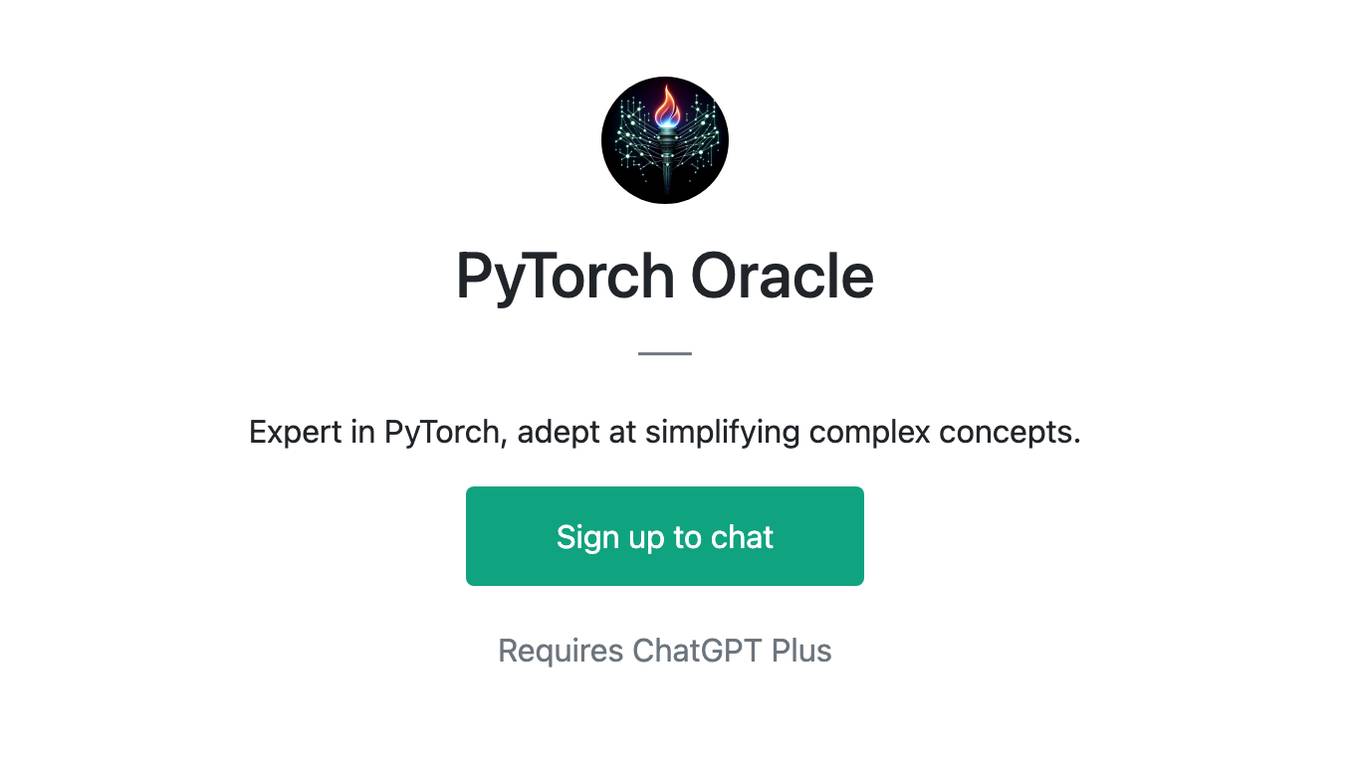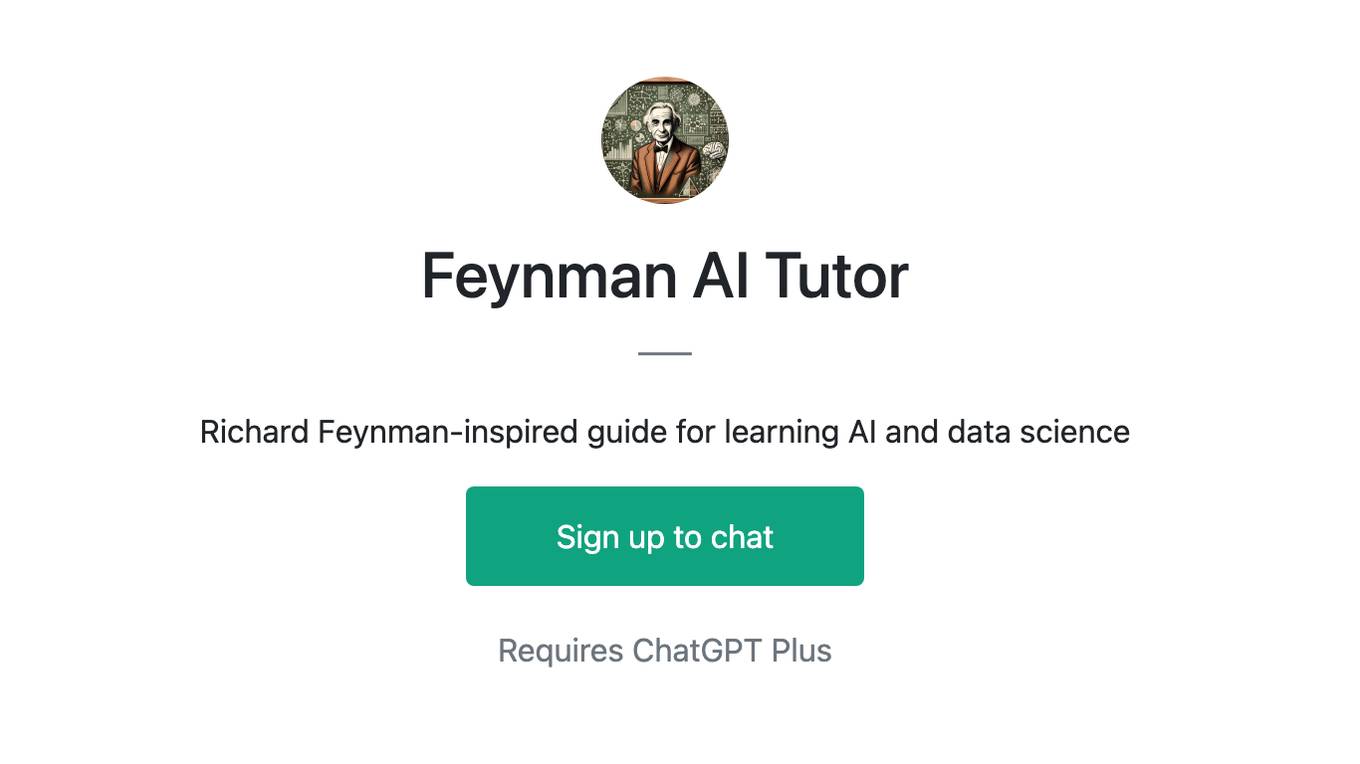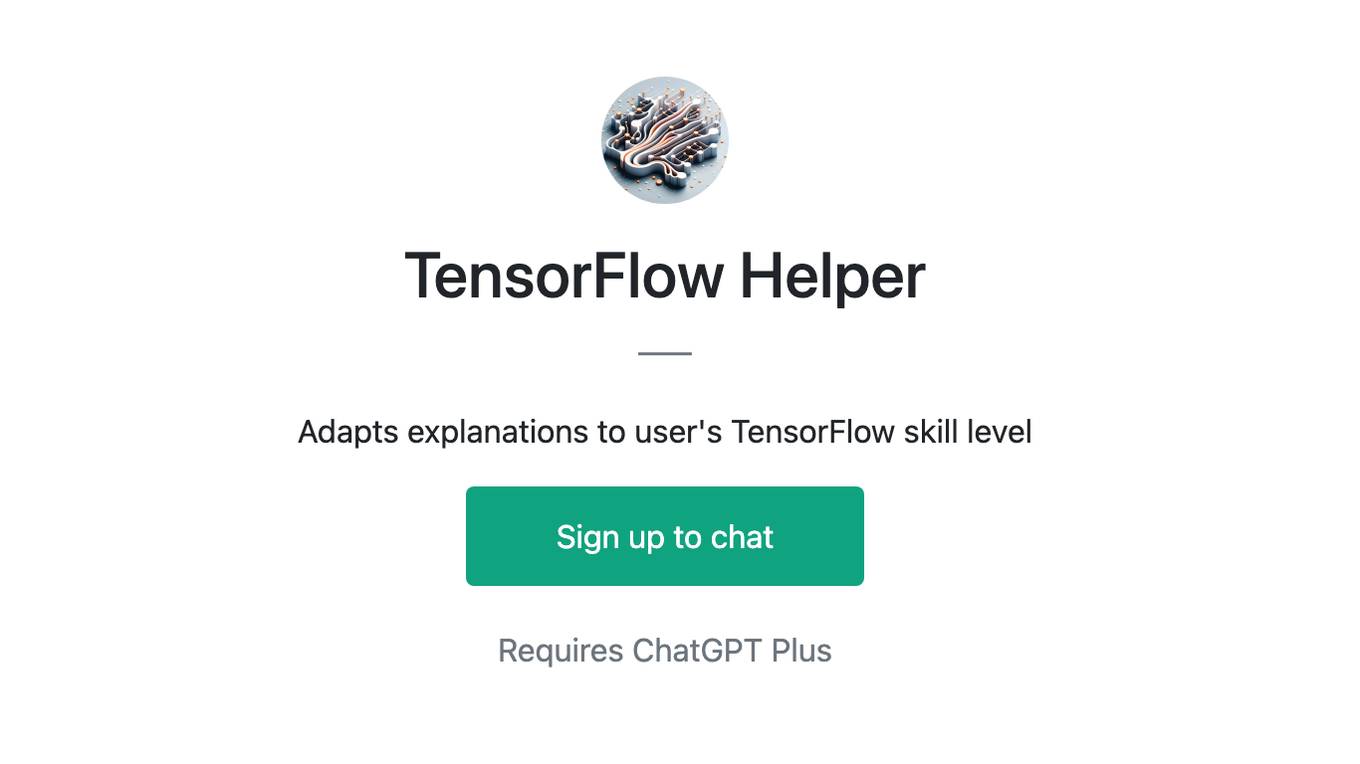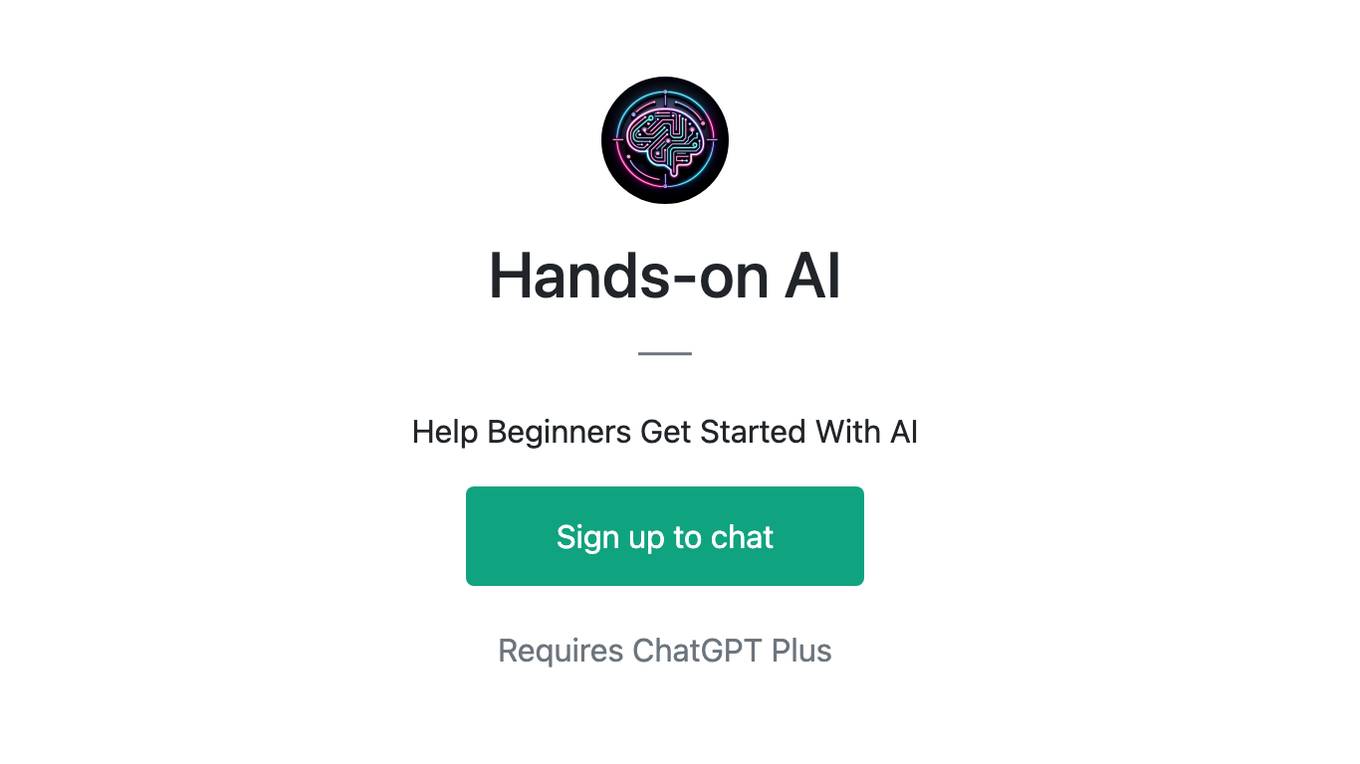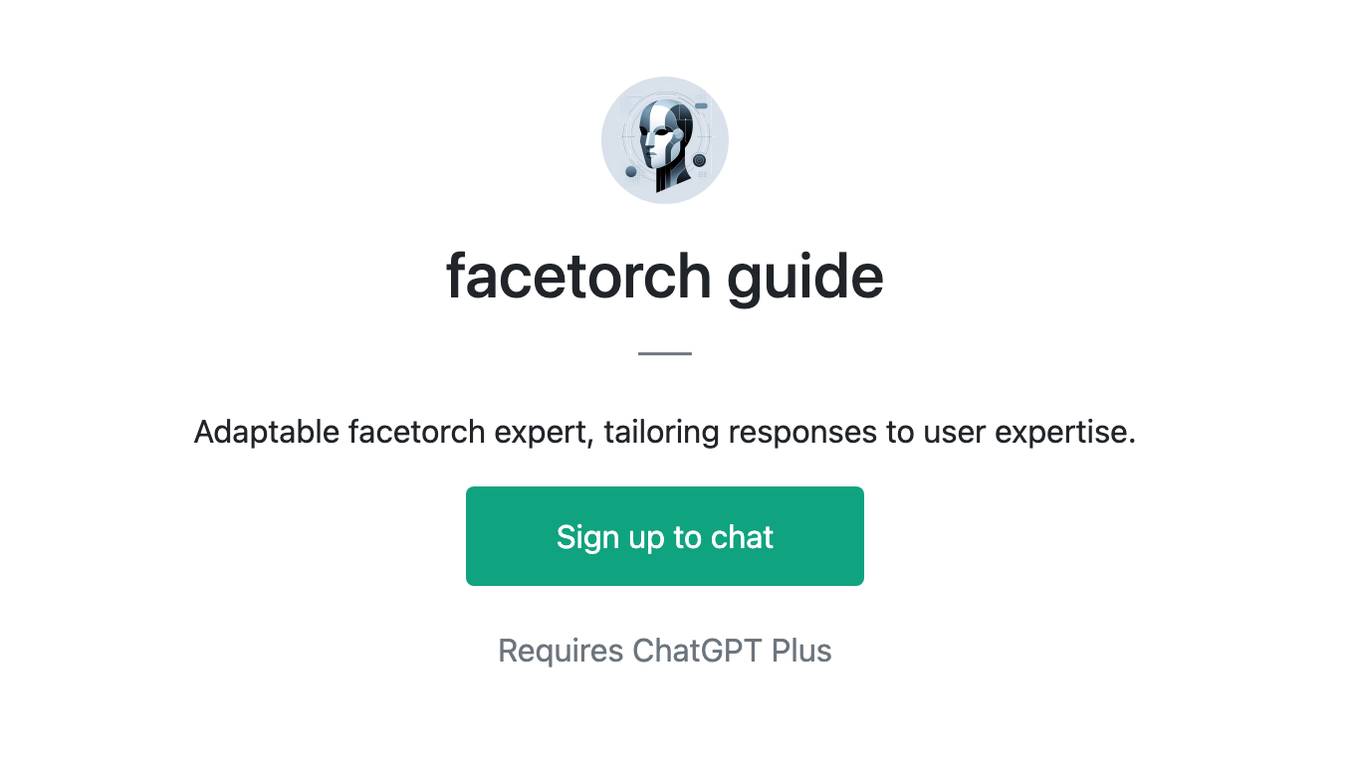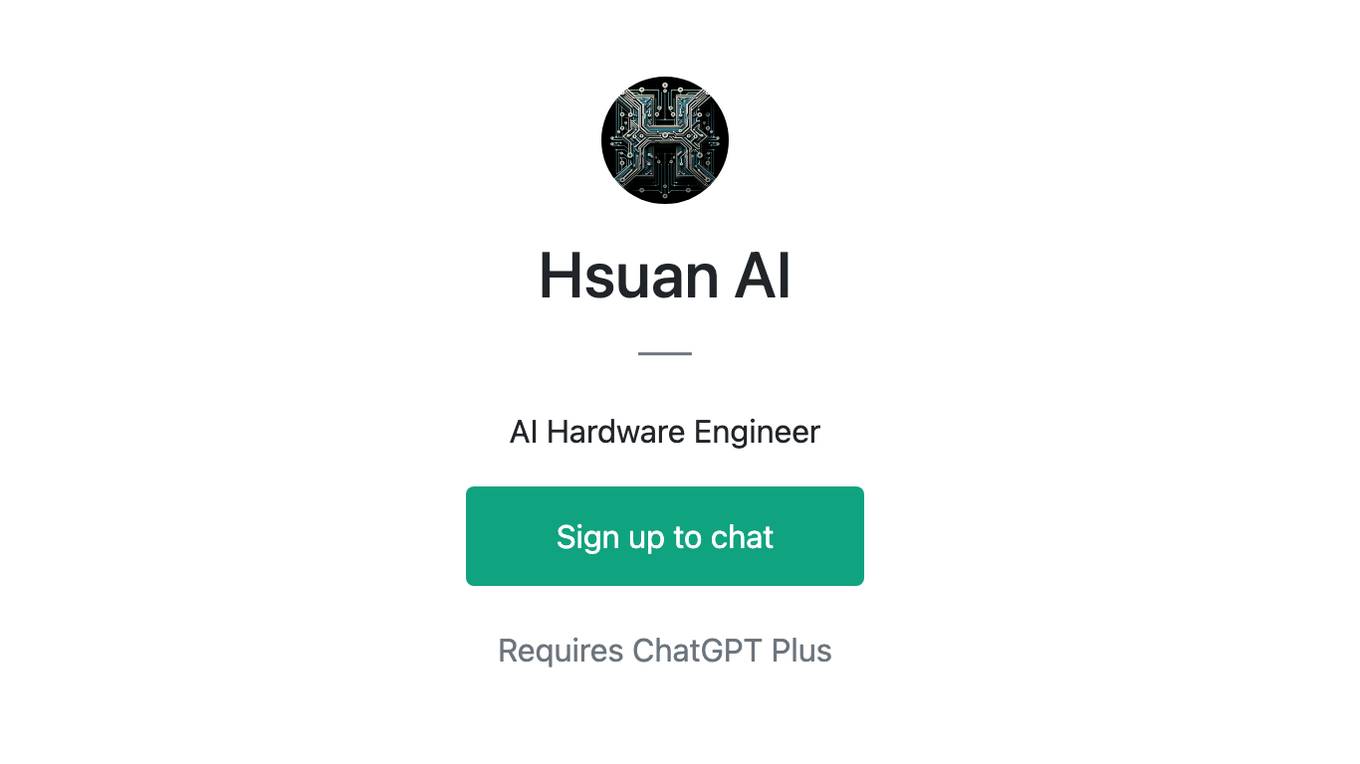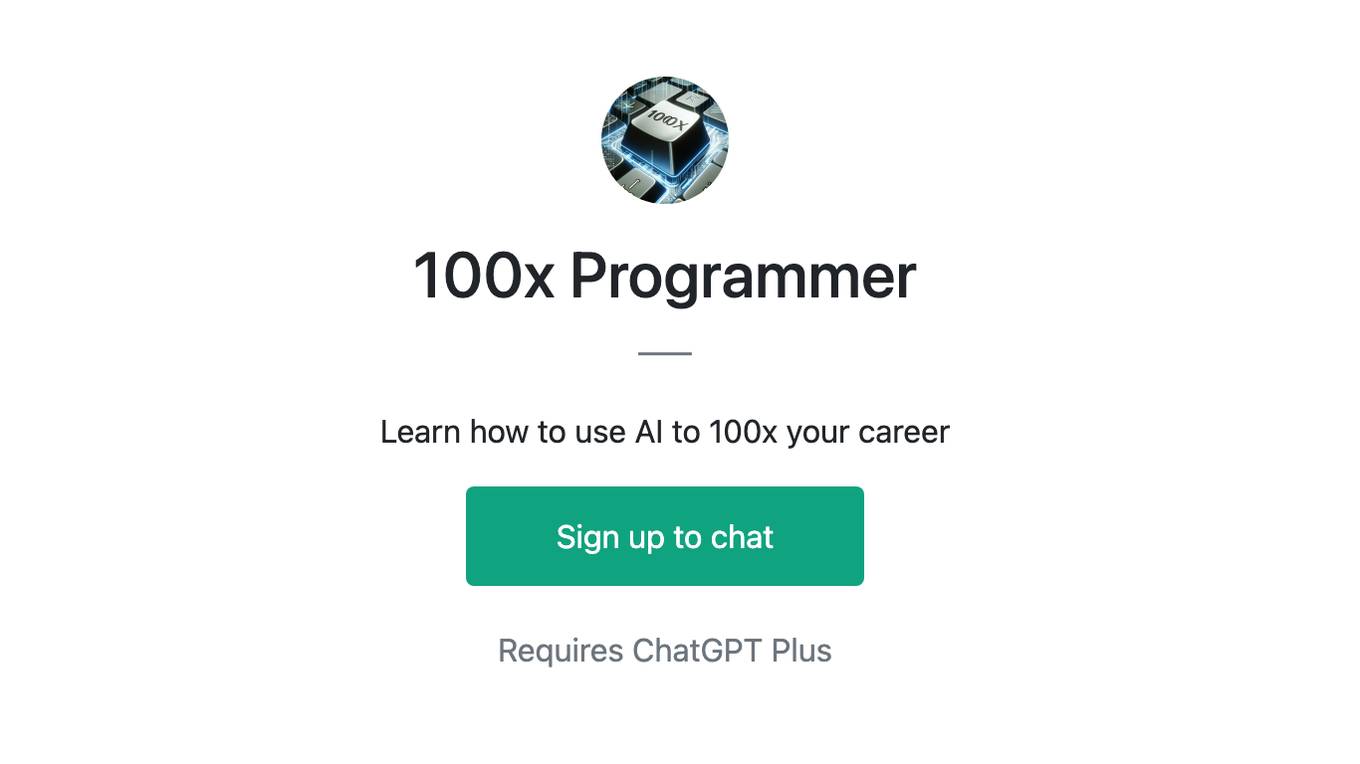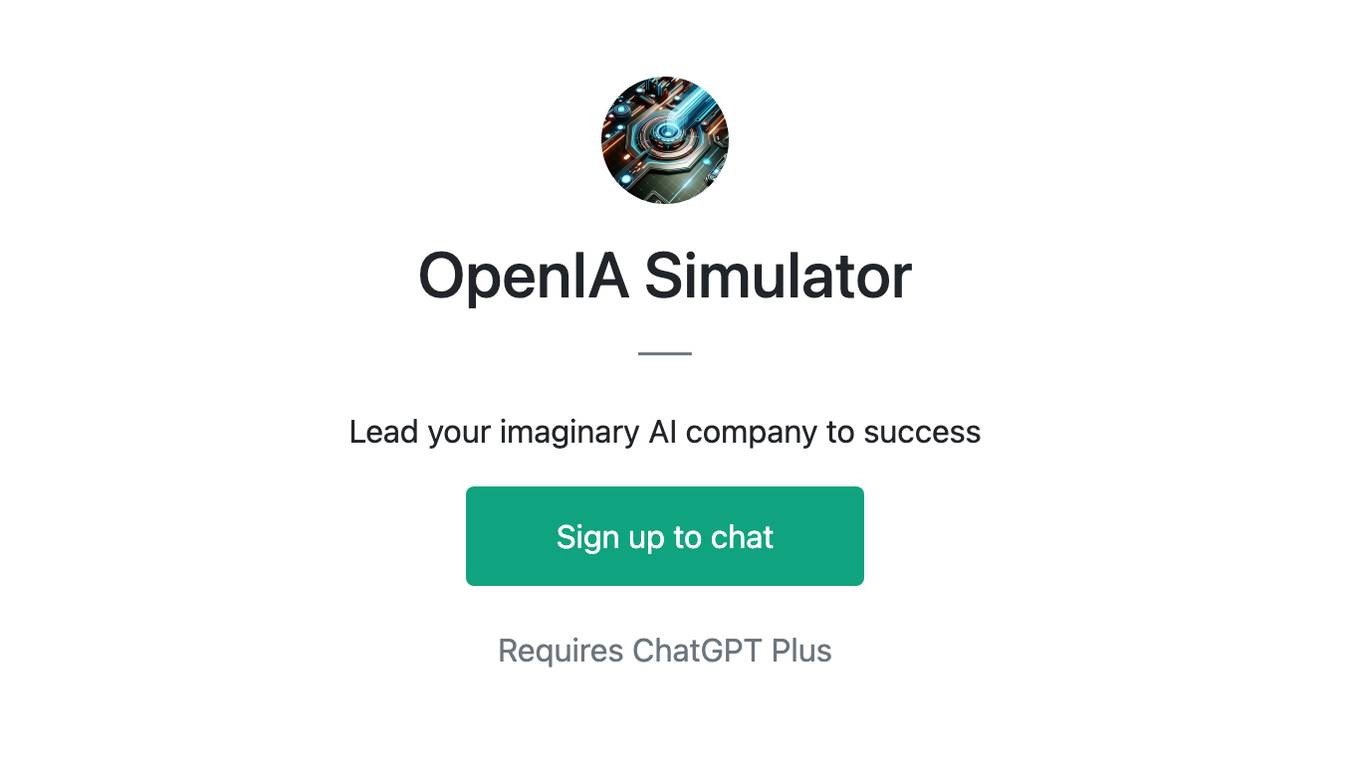Best AI tools for< Build Deep Learning Applications >
20 - AI tool Sites
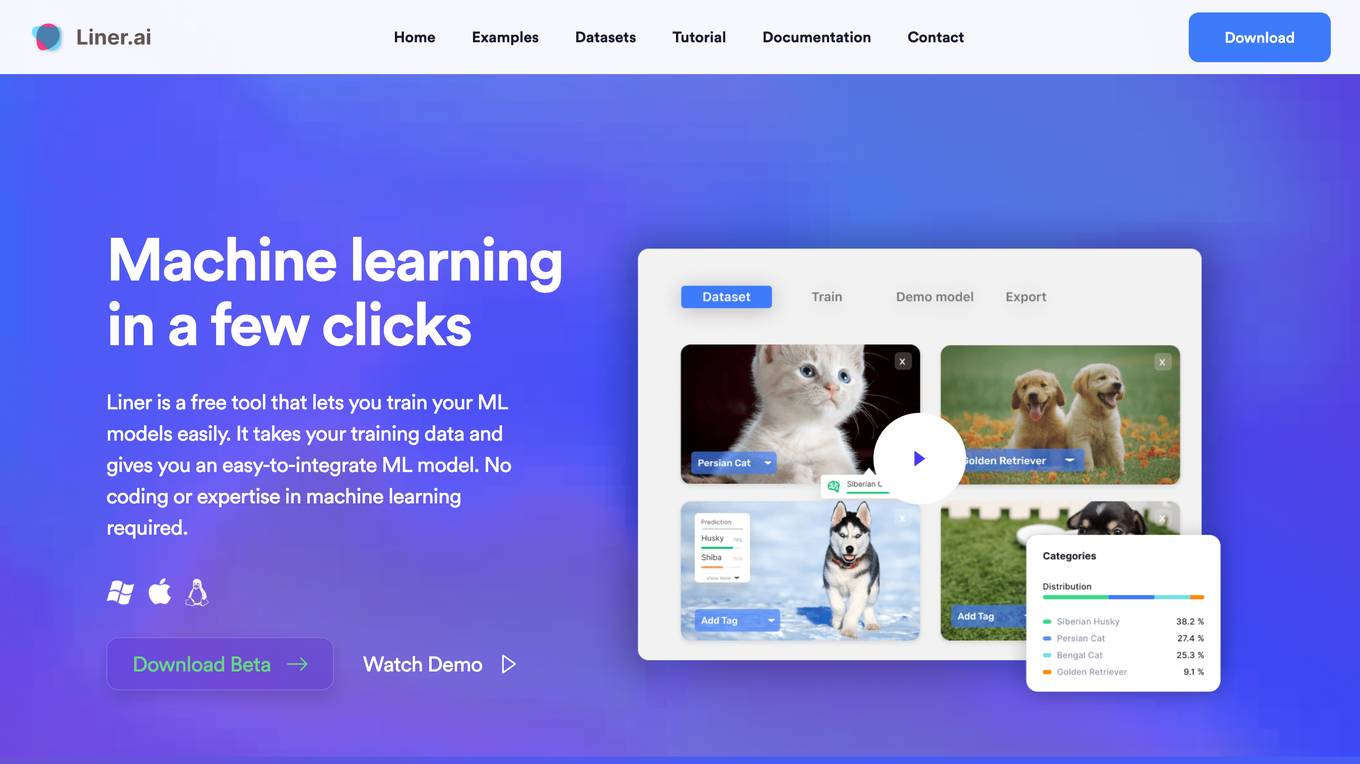
Liner.ai
Liner is a free and easy-to-use tool that allows users to train machine learning models without writing any code. It provides a user-friendly interface that guides users through the process of importing data, selecting a model, and training the model. Liner also offers a variety of pre-trained models that can be used for common tasks such as image classification, text classification, and object detection. With Liner, users can quickly and easily create and deploy machine learning applications without the need for specialized knowledge or expertise.
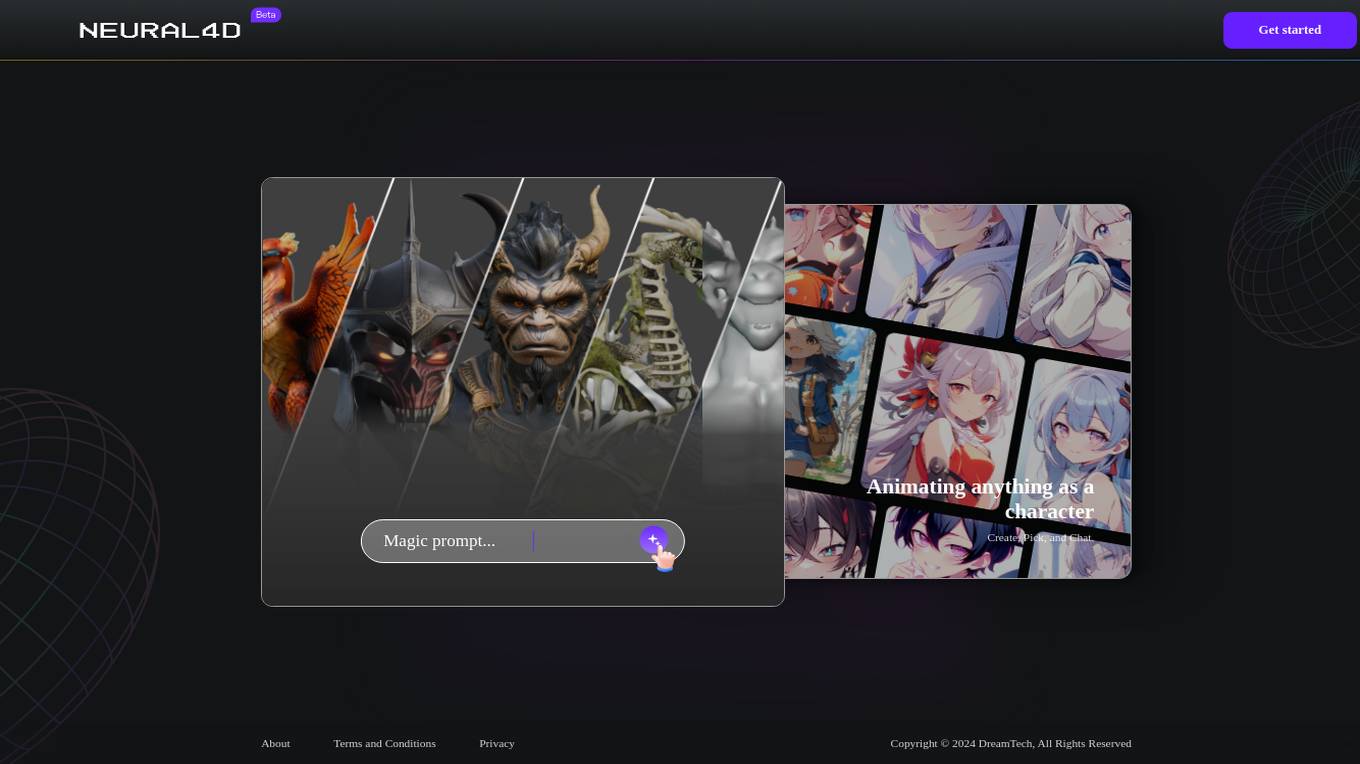
Neural4D
Neural4D is an AI tool designed to provide advanced neural network solutions. It offers a range of features for deep learning applications, including image recognition, natural language processing, and predictive analytics. With Neural4D, users can build and train complex neural networks to solve various real-world problems. The tool is user-friendly and suitable for both beginners and experienced AI practitioners.

Myple
Myple is an AI application that enables users to build, scale, and secure AI applications with ease. It provides production-ready AI solutions tailored to individual needs, offering a seamless user experience. With support for multiple languages and frameworks, Myple simplifies the integration of AI through open-source SDKs. The platform features a clean interface, keyboard shortcuts for efficient navigation, and templates to kickstart AI projects. Additionally, Myple offers AI-powered tools like RAG chatbot for documentation, Gmail agent for email notifications, and AskFeynman for physics-related queries. Users can connect their favorite tools and services effortlessly, without any coding. Joining the beta program grants early access to new features and issue resolution prioritization.

Unified DevOps platform to build AI applications
This is a unified DevOps platform to build AI applications. It provides a comprehensive set of tools and services to help developers build, deploy, and manage AI applications. The platform includes a variety of features such as a code editor, a debugger, a profiler, and a deployment manager. It also provides access to a variety of AI services, such as natural language processing, machine learning, and computer vision.
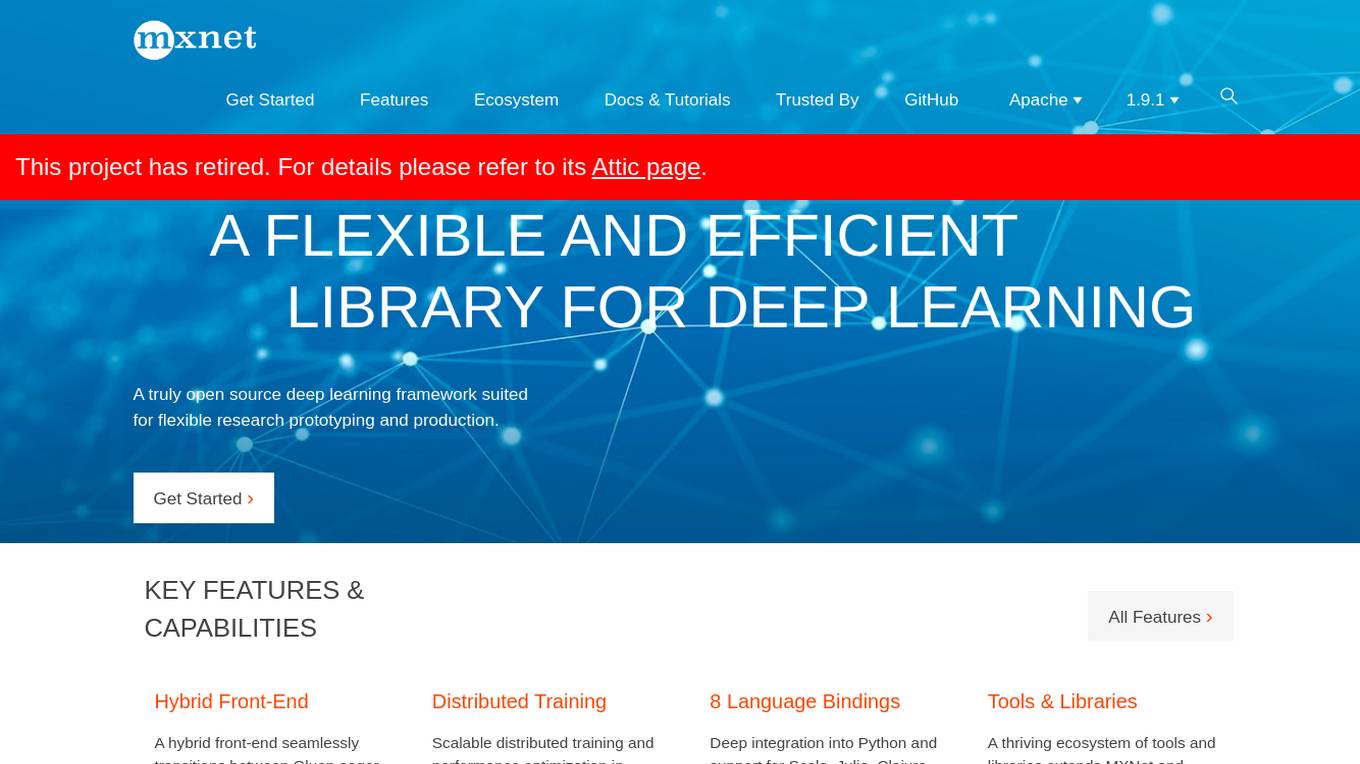
Apache MXNet
Apache MXNet is a flexible and efficient deep learning library designed for research, prototyping, and production. It features a hybrid front-end that seamlessly transitions between imperative and symbolic modes, enabling both flexibility and speed. MXNet also supports distributed training and performance optimization through Parameter Server and Horovod. With bindings for multiple languages, including Python, Scala, Julia, Clojure, Java, C++, R, and Perl, MXNet offers wide accessibility. Additionally, it boasts a thriving ecosystem of tools and libraries that extend its capabilities in computer vision, NLP, time series, and more.
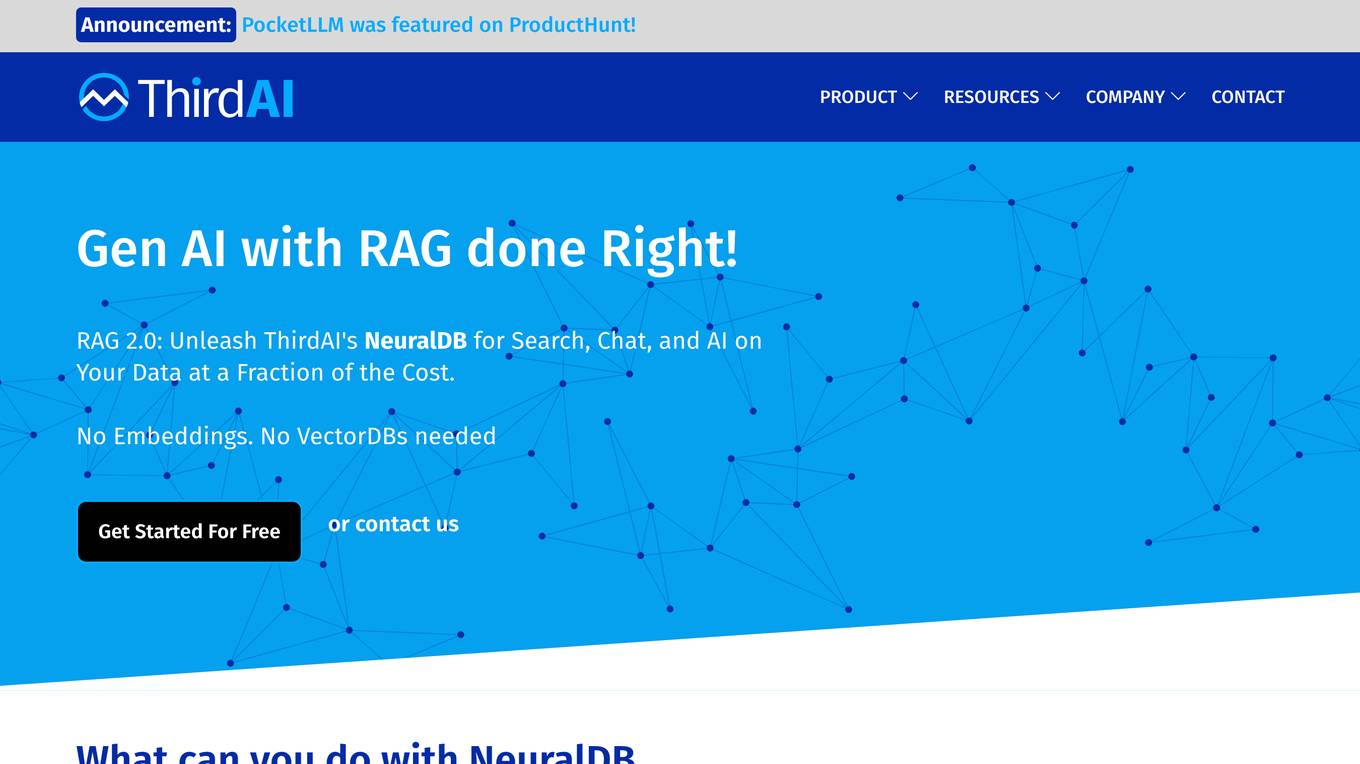
Thirdai
Thirdai.com is an AI-powered platform that offers a range of tools and applications to enhance productivity and decision-making. The platform leverages advanced algorithms and machine learning to provide insights and solutions across various domains such as finance, marketing, and healthcare. Users can access a suite of AI tools to analyze data, automate tasks, and optimize processes. With a user-friendly interface and robust features, Thirdai.com is a valuable resource for individuals and businesses seeking to leverage AI technology for improved outcomes.
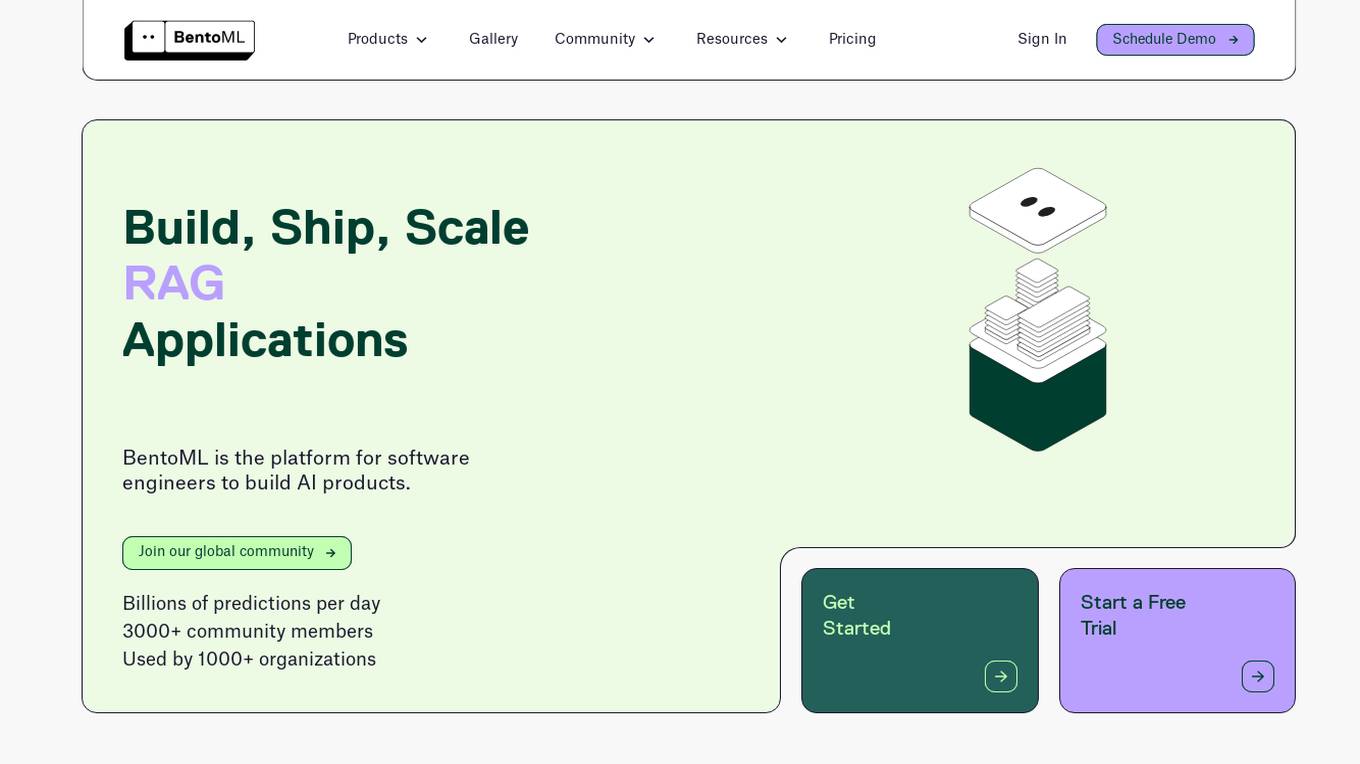
BentoML
BentoML is a platform for software engineers to build, ship, and scale AI products. It provides a unified AI application framework that makes it easy to manage and version models, create service APIs, and build and run AI applications anywhere. BentoML is used by over 1000 organizations and has a global community of over 3000 members.
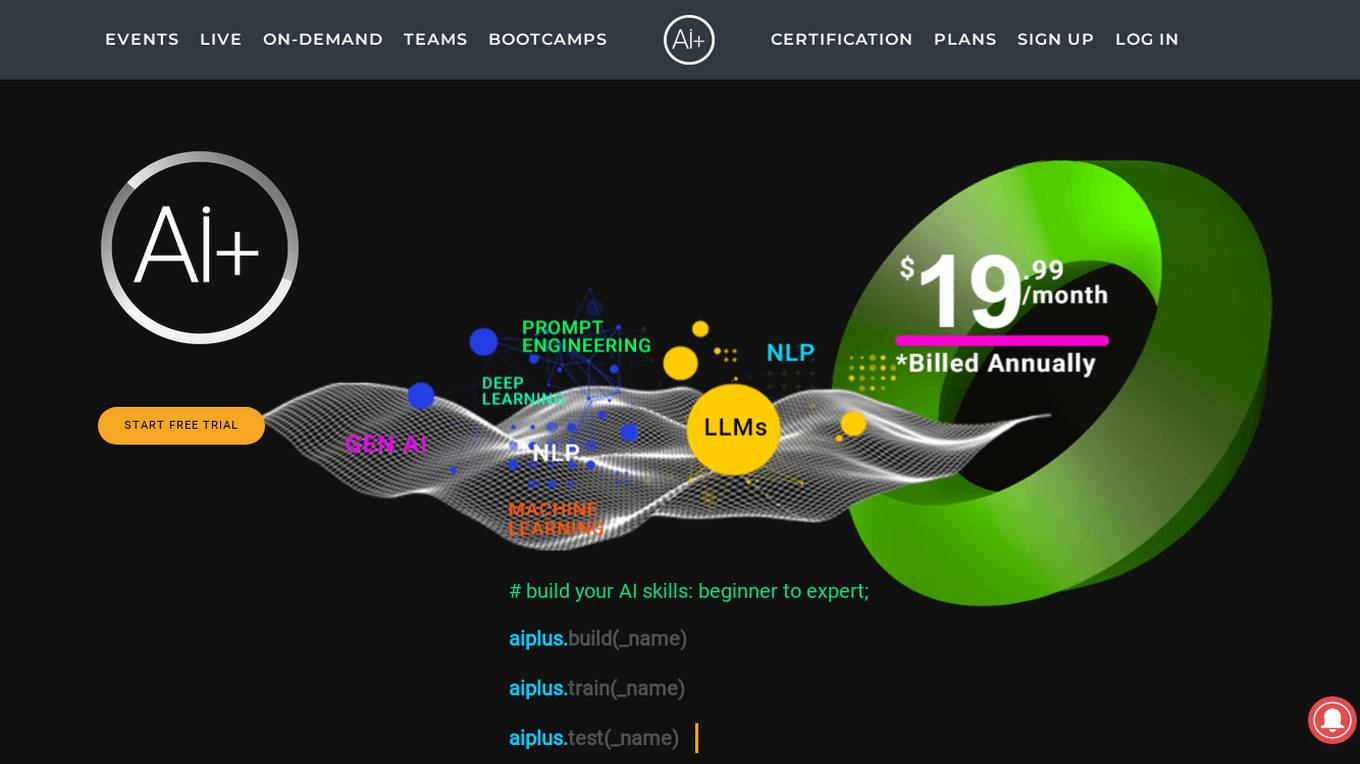
AI+ Training & Conferences
The website is a platform offering AI training and conferences for data science practitioners. It provides live and on-demand events, bootcamps, certifications, and courses covering various AI topics such as deep learning, machine learning, and generative AI. Users can access expert-led training sessions, workshops, and hands-on projects to enhance their AI skills and knowledge. The platform aims to unlock potential opportunities for learning, networking, and professional growth in the field of AI and data science.
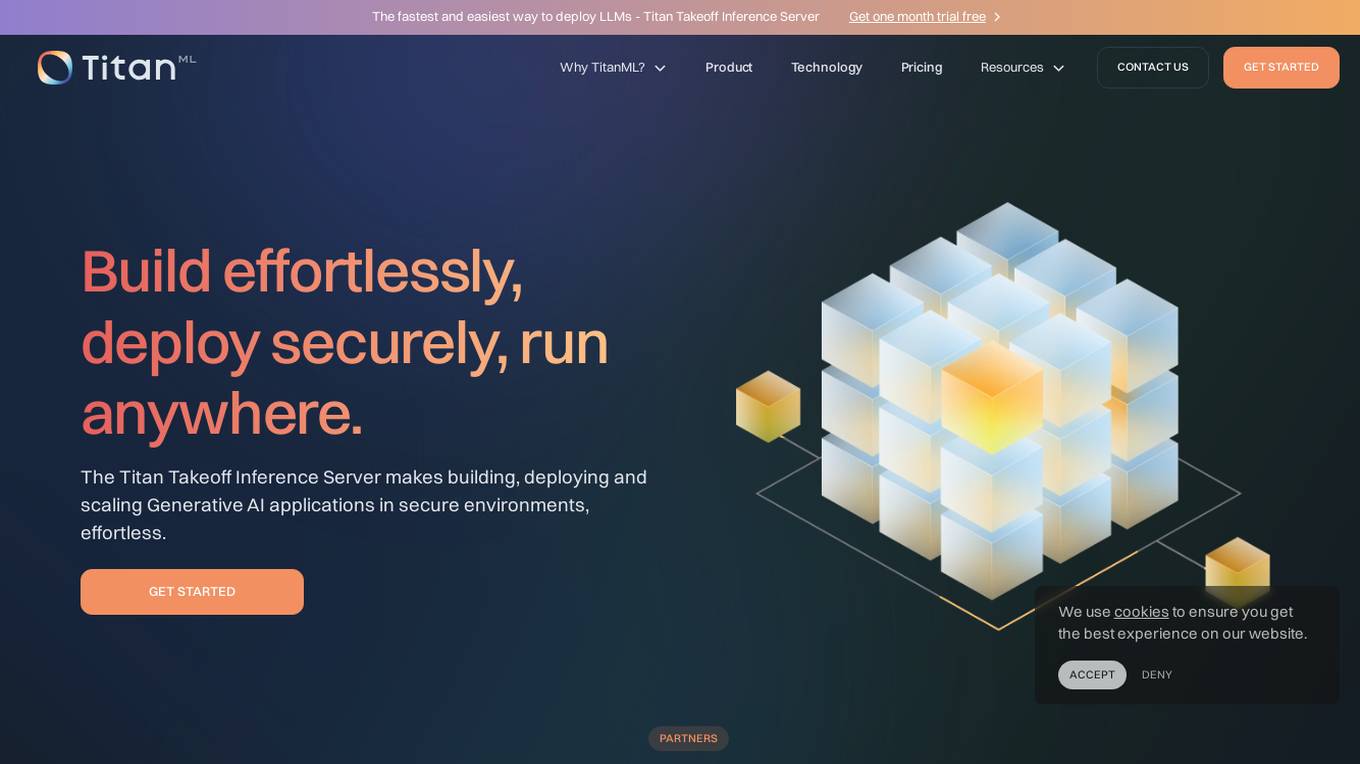
TitanML
TitanML is a platform that provides tools and services for deploying and scaling Generative AI applications. Their flagship product, the Titan Takeoff Inference Server, helps machine learning engineers build, deploy, and run Generative AI models in secure environments. TitanML's platform is designed to make it easy for businesses to adopt and use Generative AI, without having to worry about the underlying infrastructure. With TitanML, businesses can focus on building great products and solving real business problems.

Imagga
Imagga is a leading provider of image recognition solutions for developers and businesses. Its API empowers intelligent apps with customizable machine learning technology. Imagga's solutions include tagging, categorization, cropping, color extraction, visual search, facial recognition, custom training, and content moderation. These solutions are used by over 30K startups, developers, and students, and trusted by over 200 business customers in more than 82 countries worldwide.
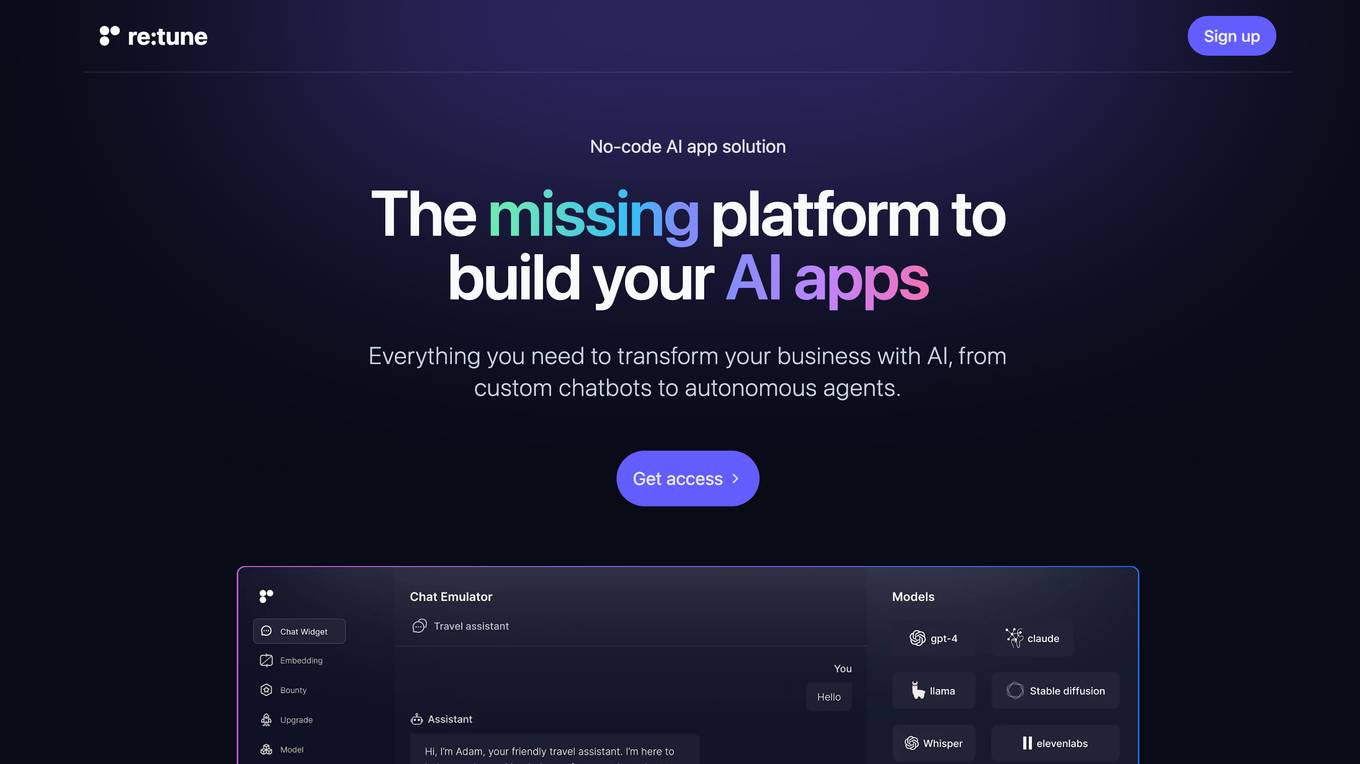
re:tune
re:tune is a no-code AI app solution that provides everything you need to transform your business with AI, from custom chatbots to autonomous agents. With re:tune, you can build chatbots for any use case, connect any data source, and integrate with all your favorite tools and platforms. re:tune is the missing platform to build your AI apps.
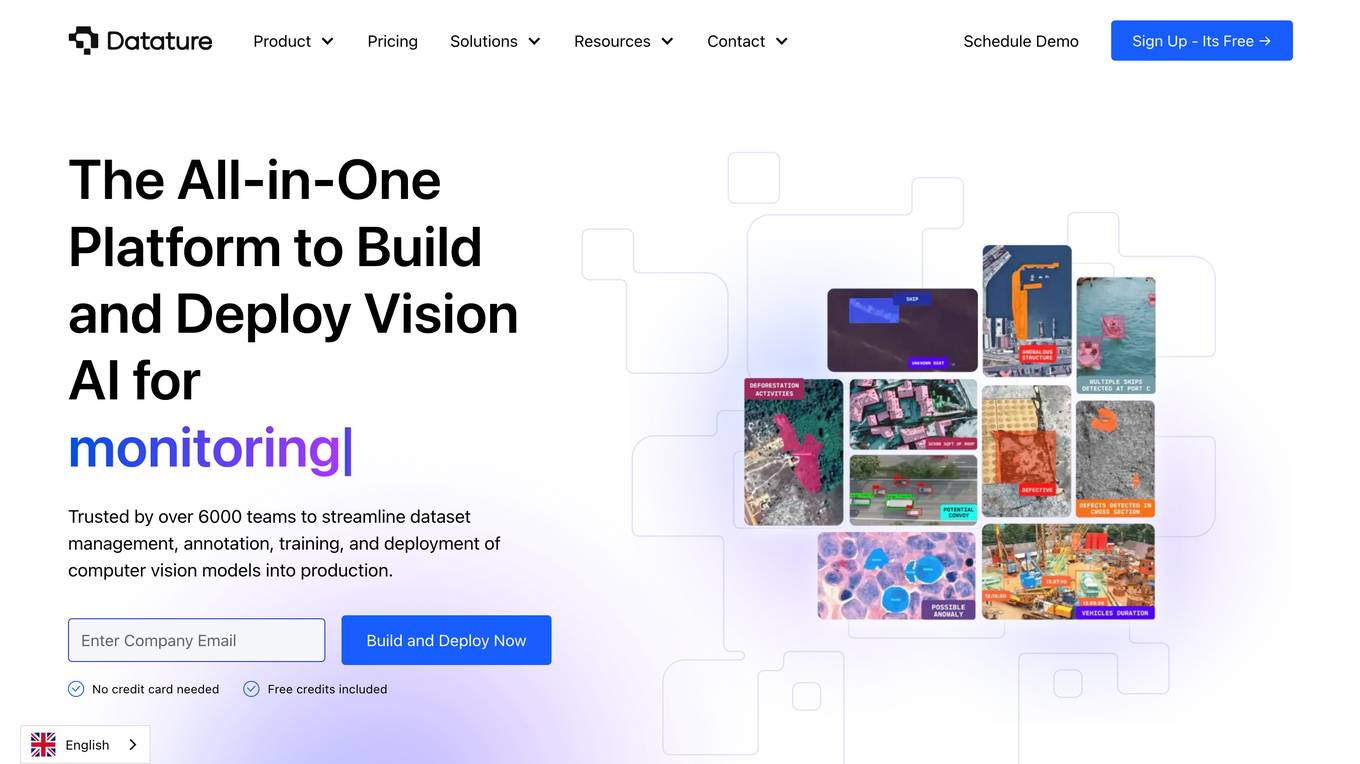
Datature
Datature is an all-in-one platform for building and deploying computer vision models. It provides tools for data management, annotation, training, and deployment, making it easy to develop and implement computer vision solutions. Datature is used by a variety of industries, including healthcare, retail, manufacturing, and agriculture.
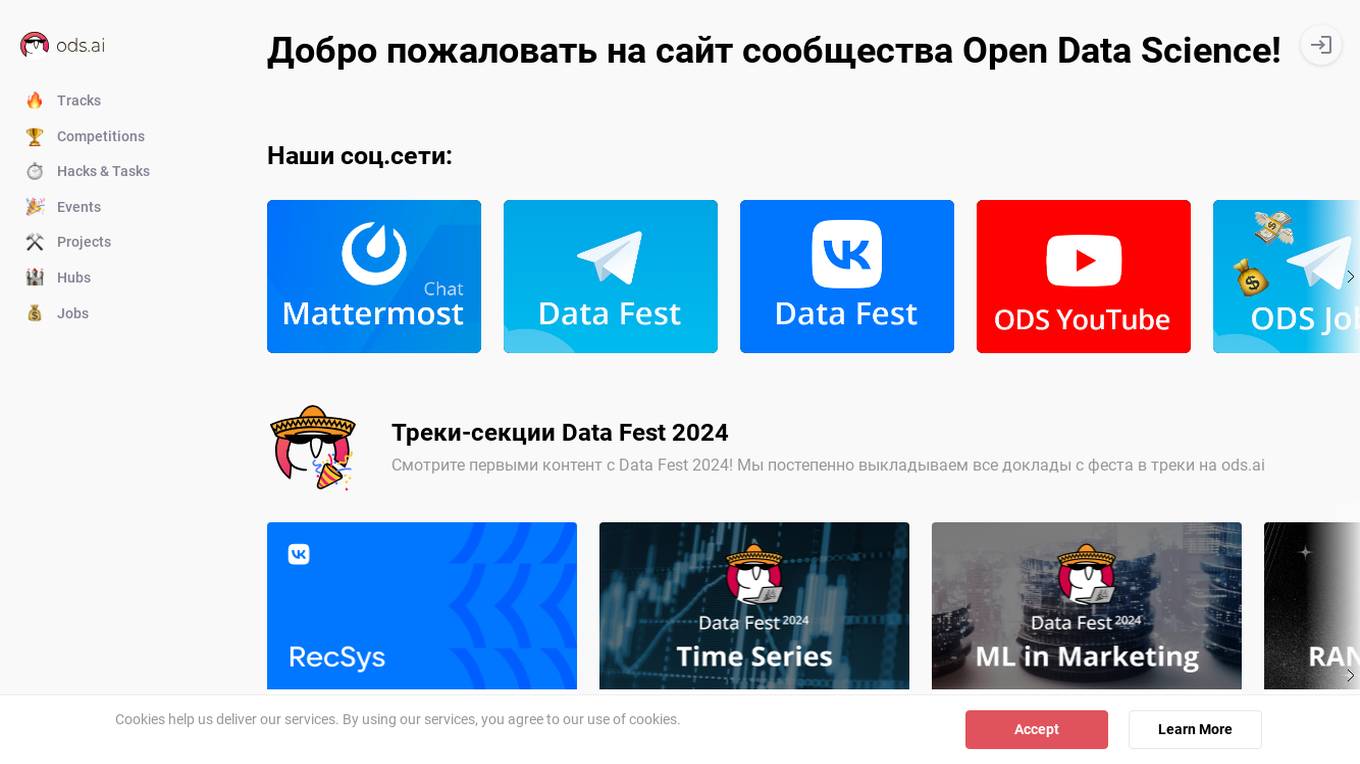
Open Data Science
Open Data Science (ODS) is a community website offering a platform for data science enthusiasts to engage in tracks, competitions, hacks, tasks, events, and projects. The website serves as a hub for job opportunities and provides a space for privacy policy, service agreements, and public offers. ODS.AI, established in 2015, focuses on various data science topics such as machine learning, computer vision, natural language processing, and more. The platform hosts online and offline events, conferences, and educational courses to foster learning and networking within the data science community.
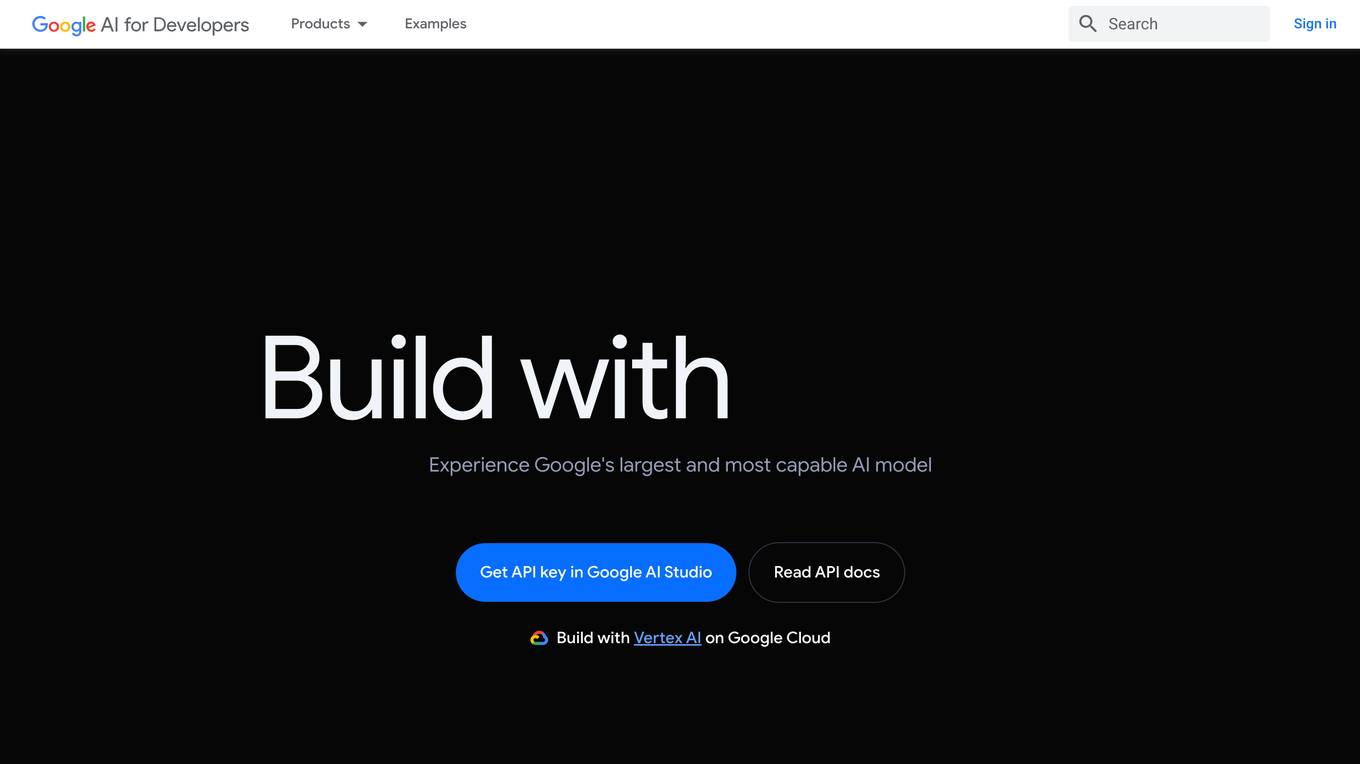
Gemini
Gemini is a large and powerful AI model developed by Google. It is designed to handle a wide variety of text and image reasoning tasks, and it can be used to build a variety of AI-powered applications. Gemini is available in three sizes: Ultra, Pro, and Nano. Ultra is the most capable model, but it is also the most expensive. Pro is the best performing model for a wide variety of tasks, and it is a good value for the price. Nano is the most efficient model, and it is designed for on-device use cases.
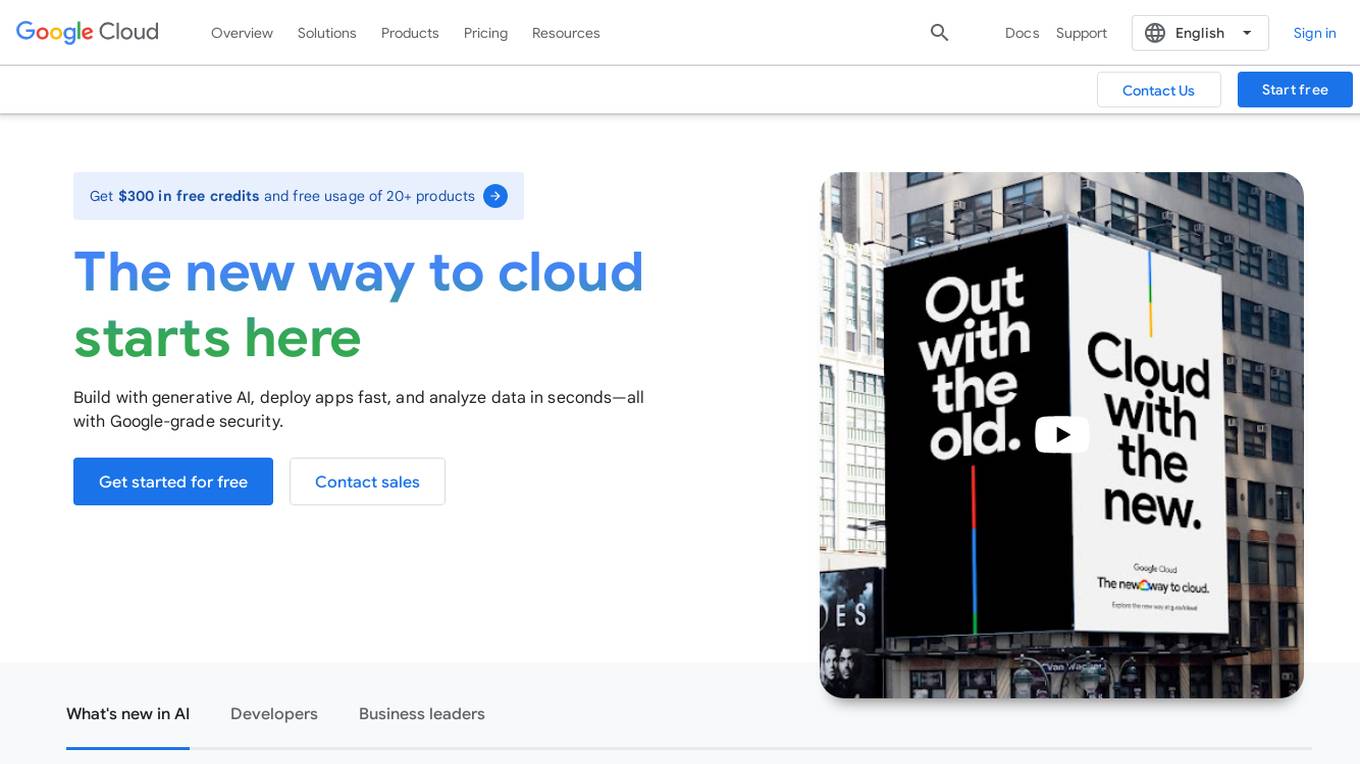
Google Cloud
Google Cloud is a suite of cloud computing services that runs on the same infrastructure as Google. Its services include computing, storage, networking, databases, machine learning, and more. Google Cloud is designed to make it easy for businesses to develop and deploy applications in the cloud. It offers a variety of tools and services to help businesses with everything from building and deploying applications to managing their infrastructure. Google Cloud is also committed to sustainability, and it has a number of programs in place to reduce its environmental impact.
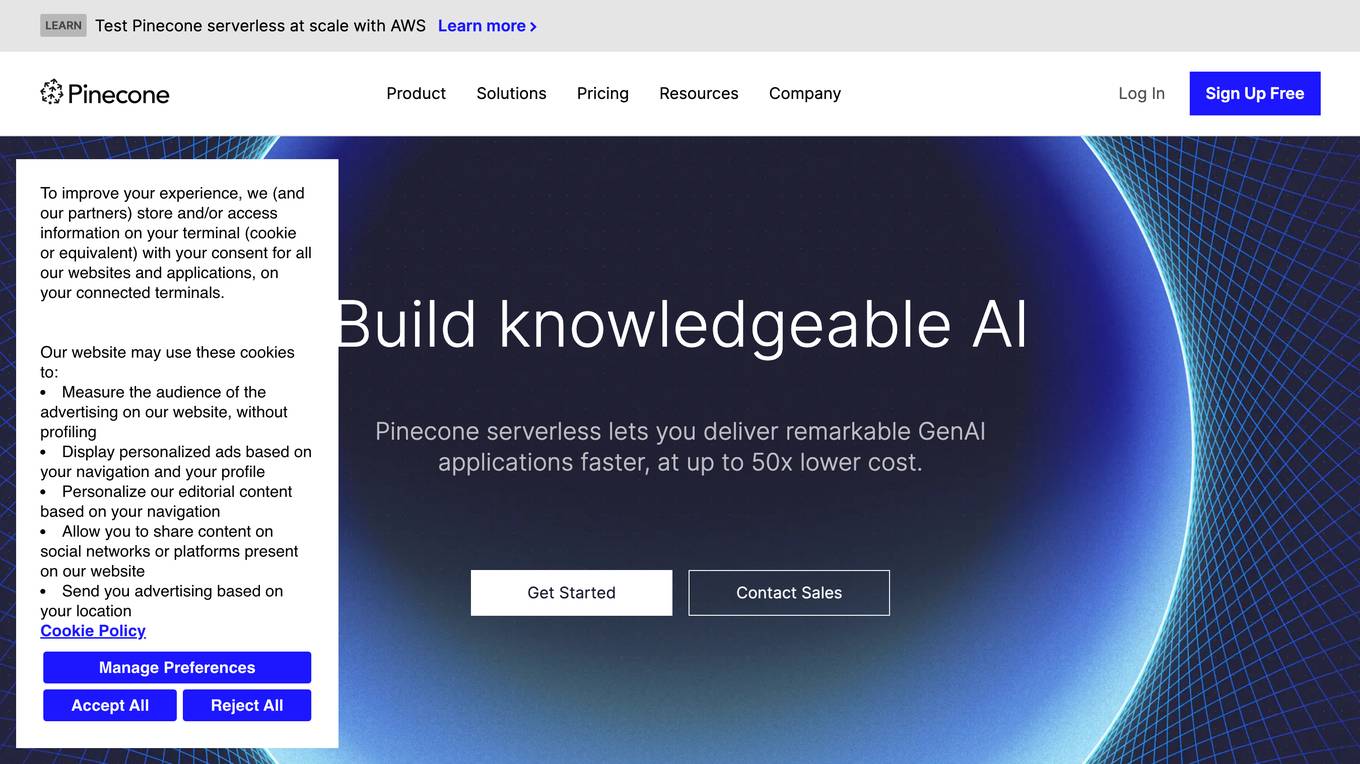
Pinecone
Pinecone is a vector database that helps power AI for the world's best companies. It is a serverless database that lets you deliver remarkable GenAI applications faster, at up to 50x lower cost. Pinecone is easy to use and can be integrated with your favorite cloud provider, data sources, models, frameworks, and more.
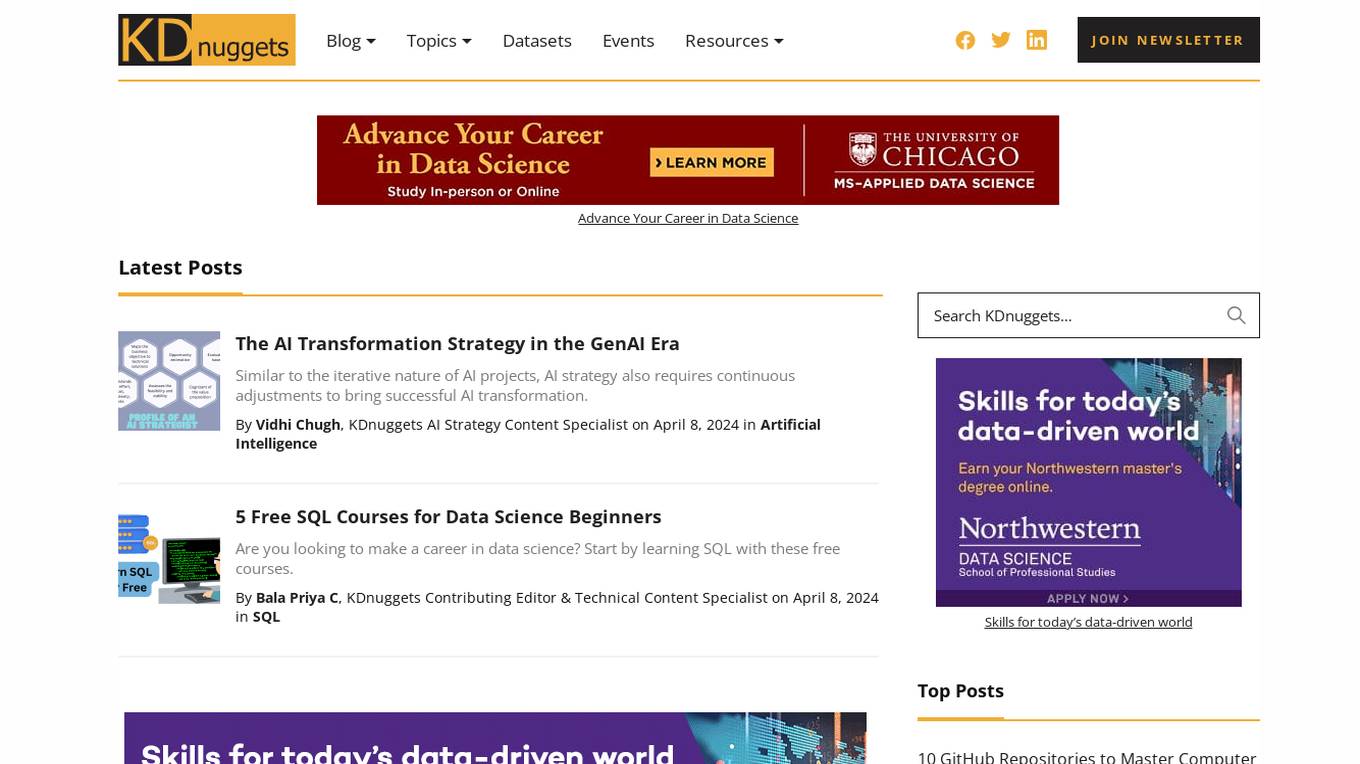
KDnuggets
KDnuggets is a leading online resource for data science, machine learning, artificial intelligence, and analytics. The website provides a wealth of information on these topics, including articles, tutorials, interviews, and resources. KDnuggets also hosts a number of online communities and forums where users can connect with each other and share knowledge.
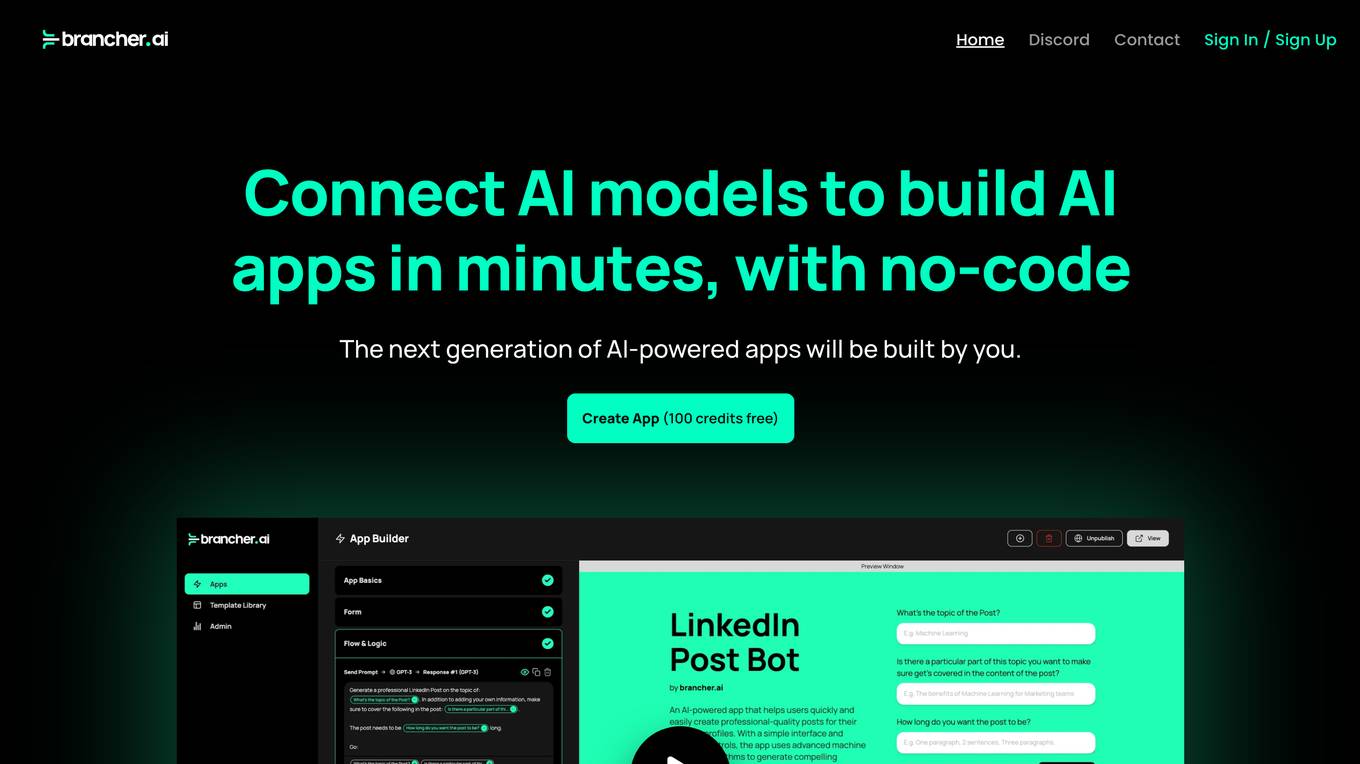
Brancher.ai
Brancher.ai is a platform that enables users to connect and use AI models to create powerful apps without the need for coding knowledge. With Brancher.ai, users can create AI-powered apps quickly and easily, allowing them to tap into the potential of AI and build unique, sophisticated applications. The platform also offers the opportunity for users to monetize and share their creations, allowing them to potentially earn from their work.

GPTConsole
GPTConsole is an AI-powered platform that helps developers build production-ready applications faster and more efficiently. Its AI agents can generate code for a variety of applications, including web applications, AI applications, and landing pages. GPTConsole also offers a range of features to help developers build and maintain their applications, including an AI agent that can learn your entire codebase and answer your questions, and a CLI tool for accessing agents directly from the command line.
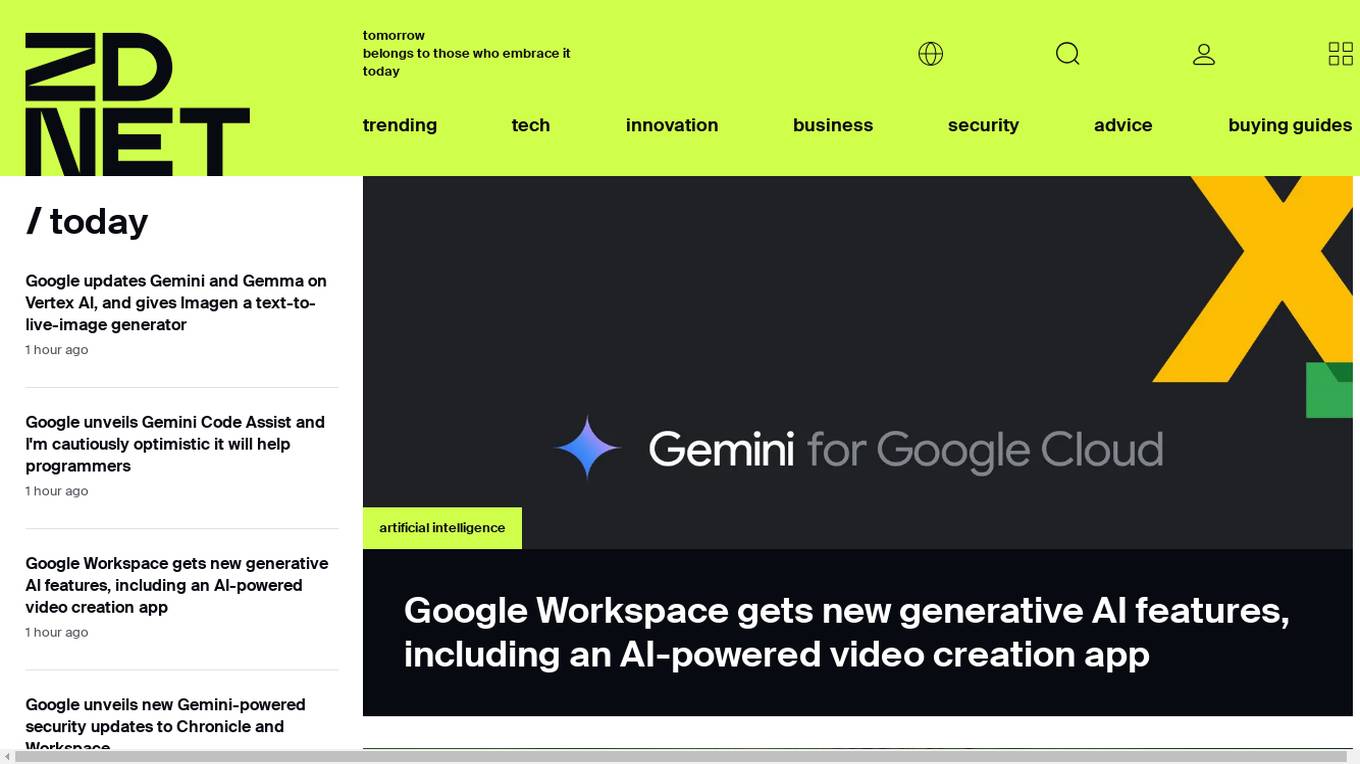
ZDNet
ZDNet is a technology news website that provides news, reviews, and advice on the latest innovations in the tech industry. It covers a wide range of topics, including artificial intelligence, cloud computing, digital transformation, energy, robotics, sustainability, transportation, and work life. ZDNet's mission is to help readers understand the latest trends and developments in the tech industry and to make informed decisions about how to use technology to improve their lives and businesses.
0 - Open Source AI Tools
20 - OpenAI Gpts

TensorFlow Oracle
I'm an expert in TensorFlow, providing detailed, accurate guidance for all skill levels.
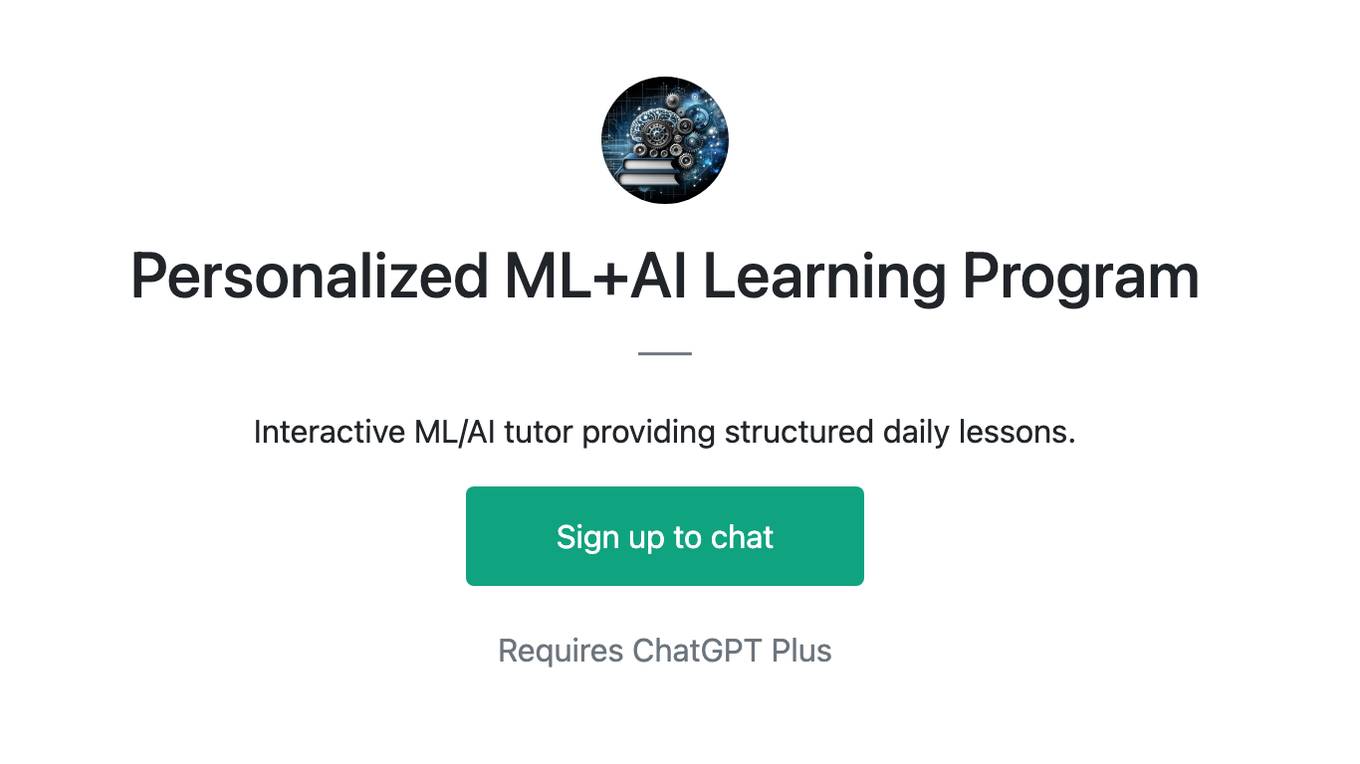
Personalized ML+AI Learning Program
Interactive ML/AI tutor providing structured daily lessons.
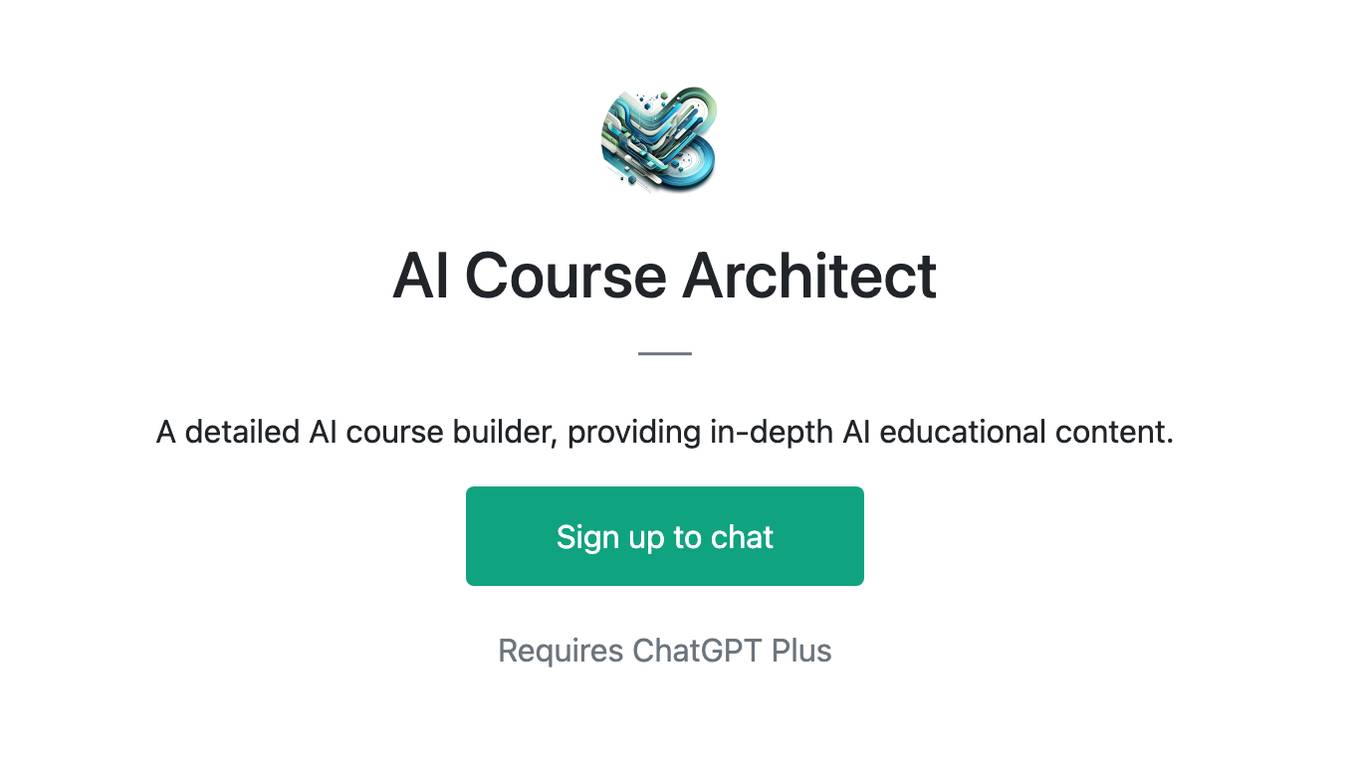
AI Course Architect
A detailed AI course builder, providing in-depth AI educational content.
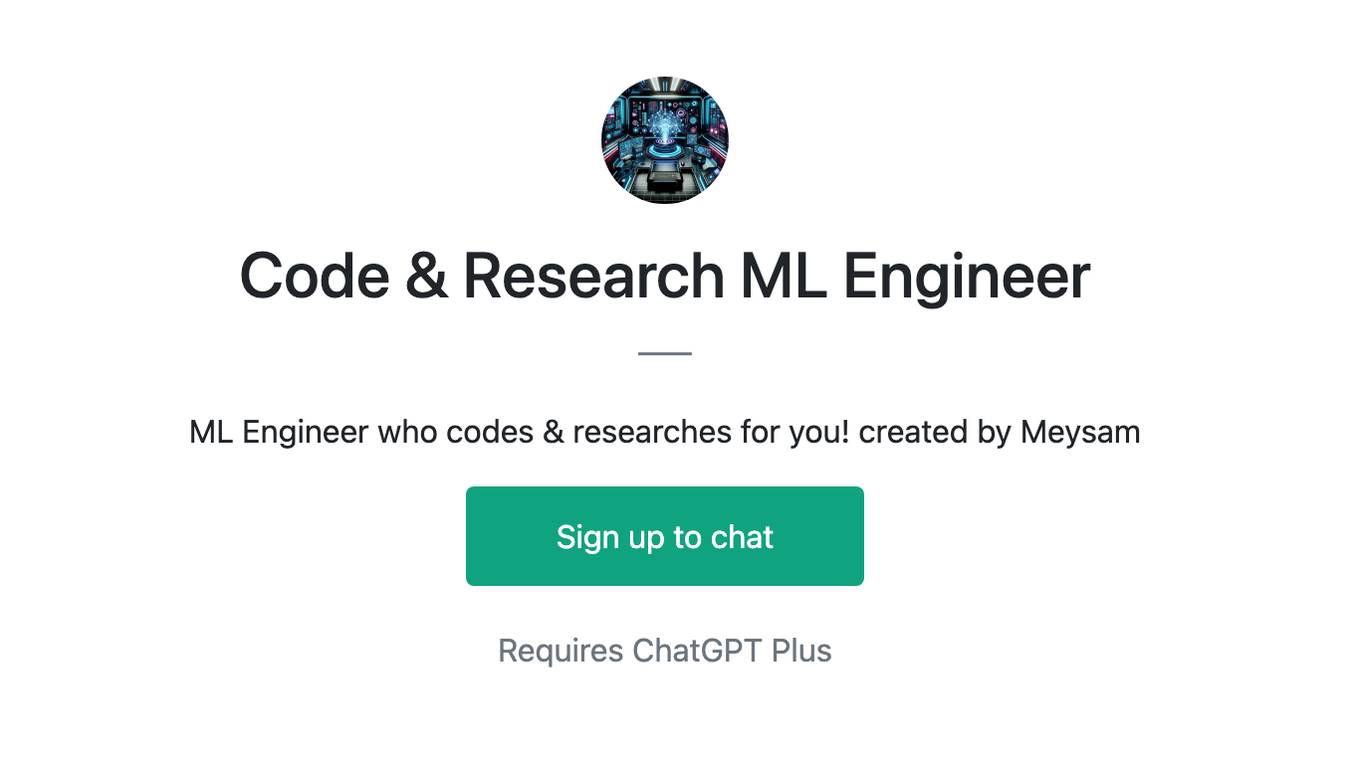
Code & Research ML Engineer
ML Engineer who codes & researches for you! created by Meysam
